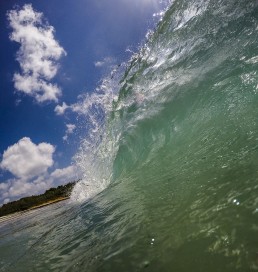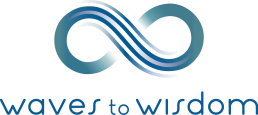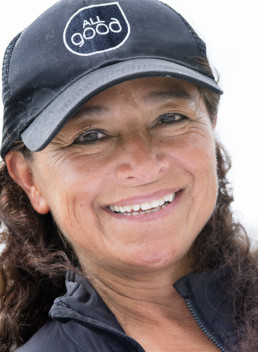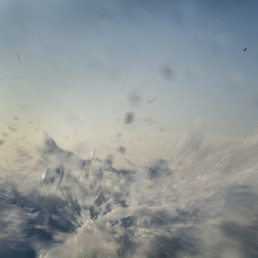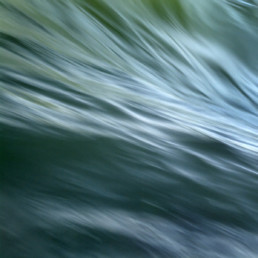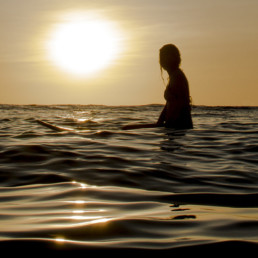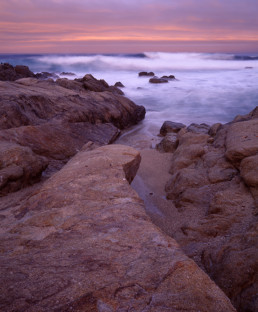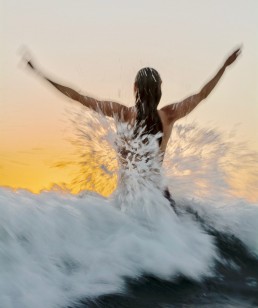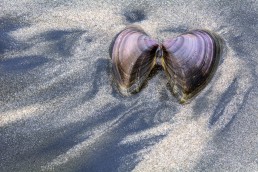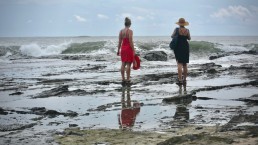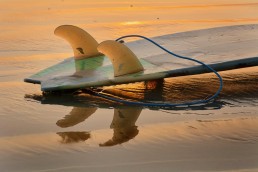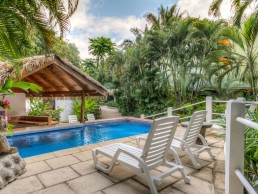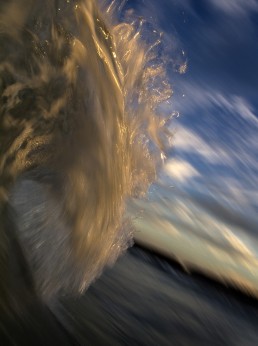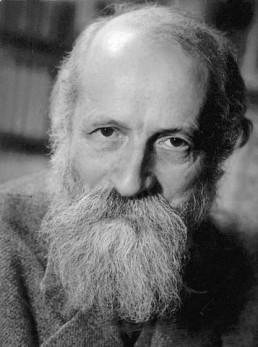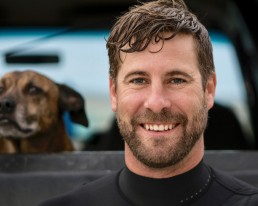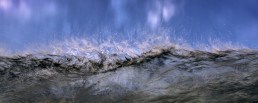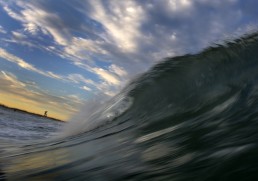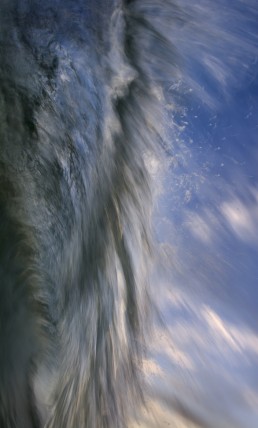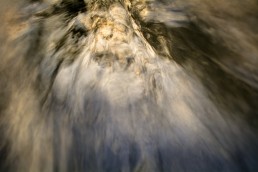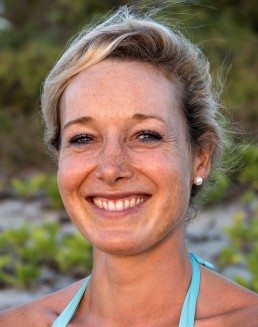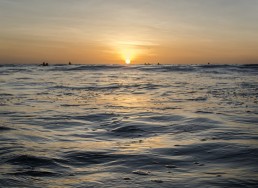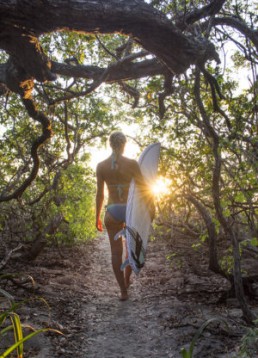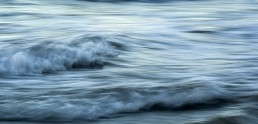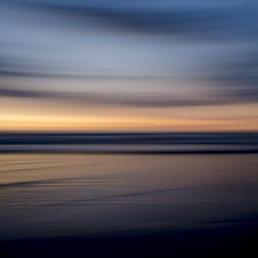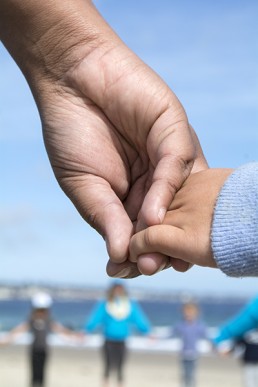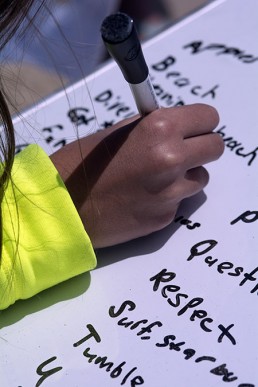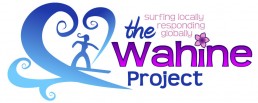Plague Spring
Sensitivity to initial conditions in an unpredictable, foggy sea around us
“A fog that won’t burn away drifts and flows across my field of vision.”
Annie Dillard
Pilgrim At Tinker Creek
“I really don’t think life is about the I-could-have-beens. Life is only about the I-tried-to-do. I don’t mind the failure but I can’t imagine that I’d forgive myself if I didn’t try.”
Nikki Giovanni
“As the Albatross III groped through fog over George’s Bank all of one week in the midsummer of 1949, those of us aboard had a personal demonstration of the power of a great ocean current. There was never less than a hundred miles of cold Atlantic water between us and the Gulf Stream, but the winds blew persistently from the south and the warm breath of the Stream rolled over the Bank. The combination of warm air and cold water spelled unending fog.”
Rachel Carson
The Sea Around Us
Merriam-Webster defines “the butterfly effect as follows:
“a property of chaotic systems (such as the atmosphere) by which small changes in initial conditions can lead to large-scale and unpredictable variation in the future state of the system”
The surf forecast is often wrong. You understand, even if you don’t surf. It’s the same with the weather. Get just a few days out from the instant of Now and, although there’s a lot we do know—the rain, should there be any, won’t suddenly fall up from the ground to pelt the clouds— there’s even more we don’t know. This is what I reminded myself of as I sat on my surfboard in the cold water of early spring. The weather was different a few yards away from me where the sun shone full force. I was surprised and a little colder than I thought I would be. It wasn’t supposed to be foggy. That wasn’t in the forecast. But fog there was. Rain wasn’t falling up but the water had, in its way, arisen and was wafting all around me, enveloping, close.
The swelling edge of fog bank, unusually well defined for North Carolina, was hovering just above the line of narrow dunes with their sparse vegetative covering, Panic Grass and Sea Oats. Those dunes are still allowed, even encouraged to exist because of the storm protection they offer the million-dollar homes built on this barrier island. “Barrier island”—a phrase we use for these shifting piles of sand, formed and revised by an endlessly moving sea. Those well-painted, well-washed houses were gleaming in the early sunshine. 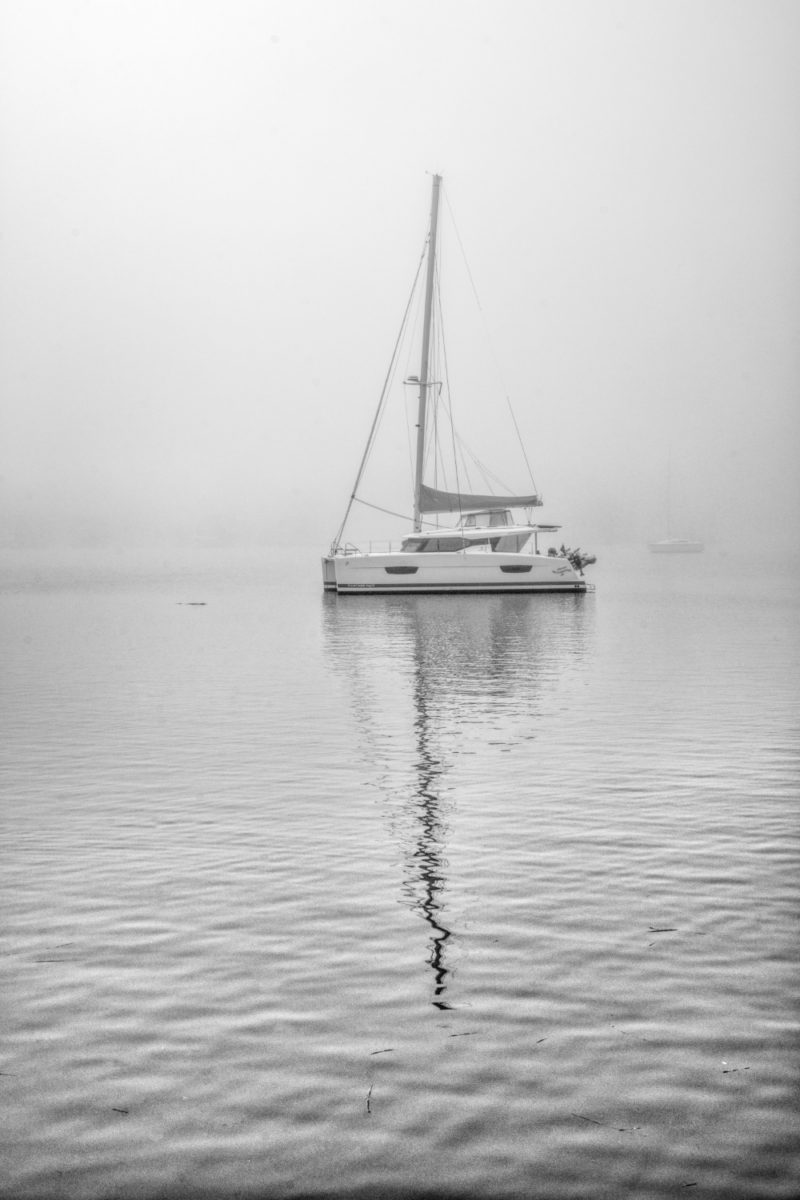 But where I floated the weather was different. It was cool, soft, the colors of the water below my surfboard muted by the suspended water that hung low over my head. There was barely any swell and it wasn’t at all clear whether I’d be able to catch any waves if any happened to appear. The immediate problem wasn’t the size of the waves. I had been in bed for the better part of 48 hours, laid low by the first dose of The Vaccine. I’d decided to come out for a short surf despite the diminished but lingering weakness that still permeated me from skin to spine. It hung inside, and here, now, instead of an exasperating annoyance (this reaction was not what I was told to expect…no one is supposed to feel ill after the first dose) the vaporous sense of dis-ease felt almost like a rightful response to the call of the fog depended— above head, settling on shoulders. I sat, bobbing on the board, watching the edge of the shrouded horizon and, trying to keep my heart on the line, to be present to the possible. I slowly filled my lungs, breathing my torso as tall and as wide as the inflation of my frame would allow, stretching myself towards the hidden sky.
But where I floated the weather was different. It was cool, soft, the colors of the water below my surfboard muted by the suspended water that hung low over my head. There was barely any swell and it wasn’t at all clear whether I’d be able to catch any waves if any happened to appear. The immediate problem wasn’t the size of the waves. I had been in bed for the better part of 48 hours, laid low by the first dose of The Vaccine. I’d decided to come out for a short surf despite the diminished but lingering weakness that still permeated me from skin to spine. It hung inside, and here, now, instead of an exasperating annoyance (this reaction was not what I was told to expect…no one is supposed to feel ill after the first dose) the vaporous sense of dis-ease felt almost like a rightful response to the call of the fog depended— above head, settling on shoulders. I sat, bobbing on the board, watching the edge of the shrouded horizon and, trying to keep my heart on the line, to be present to the possible. I slowly filled my lungs, breathing my torso as tall and as wide as the inflation of my frame would allow, stretching myself towards the hidden sky.
One breath.
Two.
Three.
An approaching line appeared, the barest hint of a dark, elongated bump like the edge of a letter of embossed print. I tried to read the text. Despite the soft, flat light, this swell had a slight but undeniable taper on the north side of its moving body. That taper, the shoulder of what I thought was probably a wave big enough to catch, seemed headed to a spot about 20 yards away from me. I turned and laid myself down and pulled my arms through the cold water— once again, trying to keep my heart on the line…
breath
presence
possibility
I gained a little speed, first from my own efforts until I felt the lift of a force not my own, and, after two more deep, long pulls I popped up to my feet, less graceful and more halting than I can usually pull off but now
Now
Now!
I was riding, or being ridden. Instead of breathing deeply and inflating from the inside, out, I was expanded from the outside, in. I was being breathed by so many forces— all here, all now. I wasn’t making this ride happen but I had shown up for it.
I came as I was.
Weak.
Imperfect.
Prone to error.
I flew over water, through the air towards the sunlit shoreline luxury that was barely noticeable behind all those converging planetary powers, meeting in this cloud of “me.” Then the wave petered out and I turned to paddle back towards the fog.
___
I found myself in the grip of this revelatory, unexpected passion in the middle of the journey of our life. This Waves to Wisdom project is the child of this great love. Unless you have just stumbled on this blog this very second, it will be clear that I mean the love of surfing. Cornell West says that justice is what love looks like in public.
What if West is right? If he is, then it was inevitable that the combination of my generally insatiable curiosity and a new love (of surfing, surf history, surf culture) would open me up to ways that that love might play out at different scales beyond the micro-moments of my own individual life. What would love look like beyond my own soaring joy in the unmappable, ever-changing zone of the ocean’s dynamic edge?
Counting from the week I sent myself off to surf camp as a 40th birthday present, it took me 7 long years to be able to pop up and steer the board, to perceive what the wave might offer and decide how I, with my many athletic limitations, could possibly respond. That meant I was 47 before I was really doing anything that can reasonably be called “surfing.” And it wasn’t 7 years of intermittent surfing. No, when I went to surf camp (believing I would just do this fun thing, an item on a “bucket list”) I could not have known that I was at the beginning of a new, chaotic moment in my life. One of unprecedented beauty, pain, confusion, learning, and loving. But I was at a beginning, in a set of initial conditions. And sensitive. That first decade was almost exclusively intense effort after intense effort and almost uninterrupted failure. Almost.
Mostly, I pearled (what happens when you bury the nose of the board in a wave) or went over the falls (what happens when you and your board get slammed from the crest to the trough), or just missed the wave altogether (what happens when you’re too weak to match the speed of the incoming wave or too scared to catch it late, for fear of going over the falls). Usually, my mistakes came from an inability to read the wave or from my own fear manifesting as hesitation, delay. But sometimes, every once in a long string of attempts, I would paddle, long and rhythmically, so hard, so hard, so hard for the gathering height of a wave, one that might have originated a thousand miles away but was here, now, approaching me from behind as I pulled my arms through the body of the sea. I would keep my head low, remember to look where I wanted to go and feel the lift of that water-borne energy under the board and the swelling thrill in my chest as I popped (or sometimes crawled) up to my feet and sensed the gathering speed, the flying spray, the light from sky and water and my own exploding heart. And I would feel carried by the ocean, by the last invisible force of a wave’s existence, here, now as it raced over the sand with me as its grateful beneficiary. Sometimes I even remembered to stay wide open to the combination of utterly unpredictable forces at work in that moment, and the next. The lip of the wave might suddenly speed up and pitch as it found a shallow sandbar. Or it might fatten and slow over an unseen trough. Then, if I didn’t sense the subtle slowing and remember to step forward, using my weight as an accelerator, I would be left behind. Or, one of a thousand and one other phenomena might unfold and it was my unending job to stay humble and receptive and nimble enough to respond to the lead. After all, each individual wave is the result of unknowable variables in its history and present. Each wave is the final expression of a complex, chaotic system and even a tiny variation between one wave and the next can make a huge difference in how each breaks. This uncertainty keeps surfing exciting. It’s also a mentor, an exacting one whose lessons are endlessly applicable to life on land. The uncountable failures and rare, ever-thrilling successes opened ways of perceiving and learning, considering and responding that I don’t think I would have stumbled on without this unexpected relationship, this connection between my aging mind and body, the ageless ocean, and its breaking waves— each wave at the end of its own journey of being in time, of moving through the world.
What I’ve learned has wrought a kind of alchemy that brought a gilt sparkle to even the most leaden moments. It’s the kind of light that reveals truth and, over time, lies. Especially the magnetic but caustic lies just under the surface of much of what our culture encourages us to value, to seek, to sacrifice for, and to be satisfied with. It’s the kind of illumination that lights love and makes everything else fall away into the background, into supporting roles— significant but subsidiary. I will never touch the bottom of the expansive, oceanic “thank you, thank you” I feel every time I get a ride and, in my more evolved moments, after I wipe-out.
And, yet, it’s often tempting to wonder what would’ve happened if I had known all of this sooner. What if I had encountered the nuances of this dance, of these particular sounds, and smells, sights, and bodily interactions sooner? Where would I have gone and who would I have become in the process? Now, writing this, it’s been a decade and a half and, by any technical measure, I’m still a mediocre surfer. If I’d started as a kid, when I first wanted to learn, I would be better now, practiced, and, as a result, expert. And sometimes in a day when the sun is still low over the water and the wind is calm when a knee-high wave peels under a lifting mist, tinted pink by morning’s bent light, I can almost feel what it might be like to be able to walk to the nose of that board with grace and expression. Sometimes, after those waves I think about that— what might have been. With a lot (a lot) of practice, that repeating thought has become like the pull of a slingshot that now, almost immediately, hurls me, again and again to the “thank you.” I thank time and the ocean and the agglomeration of circumstances that first kept me from this way of living and seeing and then, eventually, led me to it. But most of all, I am grateful that I am still so very “bad” at this beloved pastime. While I imagine it would be an amazing feeling to be able to do all the things I am trying very hard to learn to do, what’s really mattered has been the learning from scratch, the being not-good, not proficient. Instead, it’s been the relationship, the being madly, oftentimes literally, head over heels in love that turned out to be the tremendous gift of this mid-life love. It has re-created me and it keeps on doing it. It’s a recursive process of re-creation that is now apparent, not just in individual surf sessions but in the larger patterns of years and what happens during them— patterns of forgetting and re-learning about the nuance of season and swell, of heartbreak and healing, receiving and giving, weakening and strengthening, each in an endless whirling cycle— every instant resonant— but entirely new.
In this year, especially, I can’t help but feel that surfing (which, again, in my case means intermittent success and lots and lots of florid failures) has prepared me for spring. This spring’s rebirth comes after the year in which we were all reminded or, perhaps, made newly aware, that none of us can be sure of seeing these maple trees in flower or the early wildflowers (where I live, first meadow rues, and trout lilies, then trilliums and mayapples blooming on a woodland path. 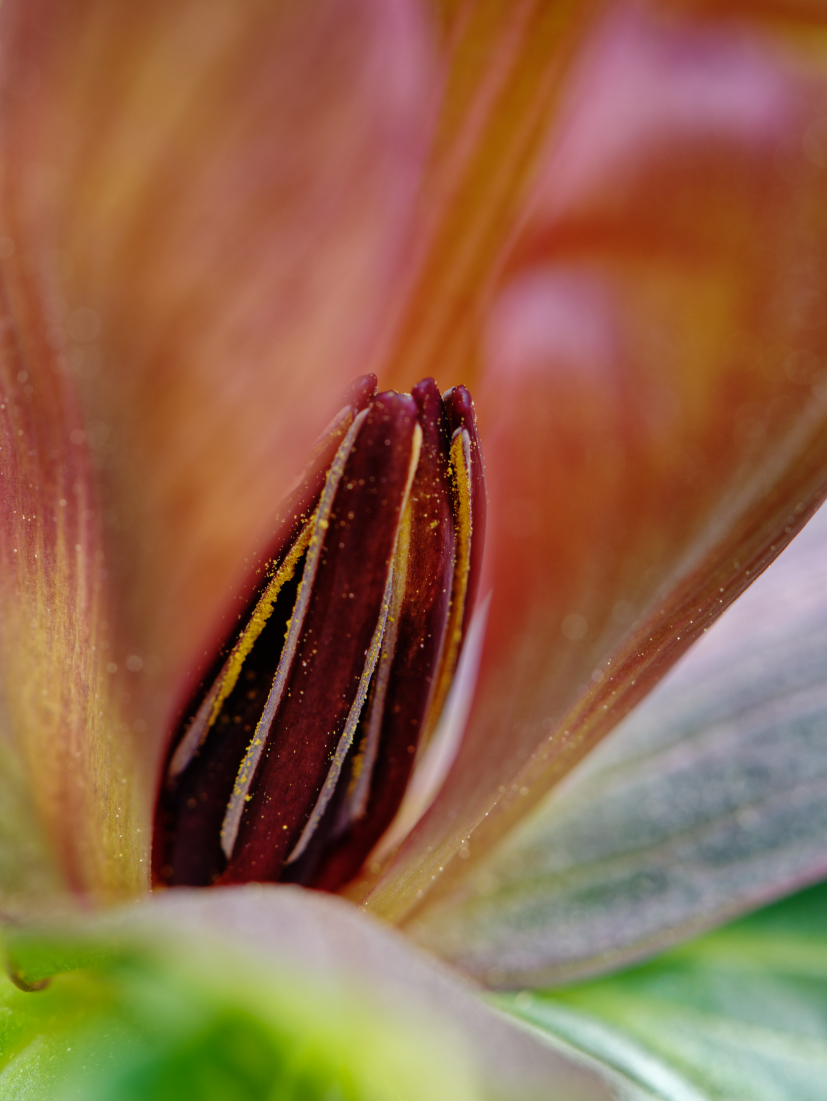 This winter of The Plague, reminders were everywhere— that we or someone dear to us might be gone before this pandemic ended, before the next solstice or equinox— the possibility of not-being feels almost as real as it is.
This winter of The Plague, reminders were everywhere— that we or someone dear to us might be gone before this pandemic ended, before the next solstice or equinox— the possibility of not-being feels almost as real as it is.
Almost as real as it has always been.
This time last year, when the broad shape of the threat was just emerging from the fog, I knew, without any doubt, despite the fear, and because of surfing, how I would want to spend my last months if these were to be those.
In love.
With my heart on the line.
In love with waves, with light, with shadow, but most of all with my people and the work I try to do well in the world. It’s work that surfing, and surfing poorly, has helped me do better and better, with ever-greater humility, always more present heart.
The beach, the place where waves end their lives on the sand, is an obvious edge, a liminal space between. We are all, always on some edge but there are places and times when we know change is imminent, real. And, although we think we know what might happen, unpredictable. This time of year, when spring is new, it’s easier to acknowledge our animal, planetary reality because we can feel it every time we walk out the door. And we can know the broad outlines of our seasonal direction.
It was colder than it is.
It was darker than it will be.
We who are still here all experienced yet another vernal equinox- this day in which we Earthlings can, regardless of mother tongue or merit, regardless of convention or culture, remember that we are together on this roundish rock.
Earth
Home
We live here on a smushed sphere where liquid water is the dominant feature, visible to any human eyeball looking casually at a globe.
But while we can see the longer days and smell the hyacinth or, where I live, the near-inebriating sweetness of Carolina Jasmine (native) and wisteria (invasive), there is so much we can’t perceive. The forces that bring the changes, the tilt of the earth, the manifold cosmic bodily interactions of gravity and inertia that make our home planet’s orbit and tilt what and where they are, even the sap rising in the Longleaf pines and sweet gums that border my urban yard or the flow of the Gulf Stream near the house where sit writing, in the lower reaches of the Cape Fear River basin—
these forces are all invisible. The spring is, as all seasons are, a visible manifestation of the complex interaction of huge and invisible forces.
Love, too is a huge and invisible force.
As is hate.
As are fear and hope and all of the currents we can see running through our life time, during our shift at or near the top of the food chain here on Earth, the source of all our food, all of our hearts and their rhythmically flowing fluid, all our chains of life and renewal. We are in the most predictable kind of time, spring follows winter as day follows night. And we are in the most unpredictable time. What will this hurricane season mean to my body, my home, my town, and all the live beings with whom I share this place? What consequences will come this season from the lengthening life-arcs of all the true-believing, well-intentioned, whip-smart youngsters who thought they meant to connect us all online? The ones, still so smart but no longer so young. Now full-grown robber barons holding onto the uncontrollable forces they’ve wrought, some still saying that more connections will only bring more good, on a larger scale in an endless recursive cycle of living our way towards techno-utopia. If only.
___
Do you know about Chaos Theory? Like all artists who reach to science for metaphor, please take this explanation with a boulder of salt. There is an idea, usually described as “sensitivity to initial conditions” or, more commonly “the butterfly effect.” It means that small, even infinitesimal actions or occurrences, over time, over the life of a system, or of an effort, or of a love, can spin the resulting cascade of events into a completely different realm of outcomes, of consequences. Those almost (or actually) invisible occurrences are not within our capacity to measure. Even if we could measure them, even if we could measure every butterfly wing’s flap above every rushing waterfall, blooming azalea, and fallow field everywhere, we probably still couldn’t predict the weather, or the surf, or our own lives, very far in advance. So we can’t know what will happen over time. For example, when we humans with our trained minds and big computers are trying to predict the weather or the waves we are very often wrong. Wrong about the sea and wrong about ourselves.
I recently had cause to read Rachel Carson’s The Sea Around Us again. I read it once, in my young adulthood, I can’t remember where I was or why I picked it up— likely wanting something sweet to chase the beautiful but bitter truth-tonic of Silent Spring, which I read around the same time. Silent Spring warns of the dire dangers of our love affair with synthetic chemicals and their unintended consequences. The Sea Around Us is a poetic distillation of what was then the best scientific understanding of the oceans— where they came from and what they do, who lives there, and what remains unknown to us. It was 1951 when Carson published Sea, her first book, to near-universal praise. She devotes a chapter to the great currents, including the Gulf Stream. It sometimes comes closer, sometimes farther. Its changes, in turn, change everything about the place where I surf: the color and temperature of the water, the life that’s present, the weather, the waves— all can be altered by ephemeral forces of distant, invisible storms and by this perennial, invisible presence. The Gulf Stream is a warm water current which Carson called “that great and rapidly flowing river-in-the-sea.”
When two bodies of significantly different temperatures encounter one another and at least one of those bodies is fluid a fog results. It’s a straightforward meteorological fact. But Carson’s treatment of it is sheer poetry. She wrote of an encounter between her companions, aboard a sailboat called Albatross III, near two great ocean currents, the warm Gulf Stream and the cold waters of the George’s Bank (an undersea mountain range that runs from the coast off Nova Scotia south to a place off the shore of Cape Cod).
“[D]ay after day the Albatross moved in a small circular room, whose walls were soft gray curtains and whose floor had a glassy smoothness. Sometimes a petrel flew, with swallow-like flutterings, across this room, entering and leaving it by passing through its walls as if by sorcery. Evenings, the sun, before it set, was a pale silver disc hung in the ship’s rigging, the drifting streamers of fog picking up a diffused band of radiance and creating a scene that set us to searching our memories for quotations from Coleridge. The sense of a powerful presence, felt but not seen, its nearness made manifest but never revealed, was infinitely more dramatic than a direct encounter with the current.
Rachel Carson
The Sea Around Us (135)
An edge created by a great meeting. People meeting that invisible edge. She could have been writing about this morning, this year, this time.
A decade after Sea came out, in 1961, American mathematician and meteorologist Edward Lorenz first made the discovery that would generate new waves of perspective about what sort of certainty about our world was available to us as humans, as Earthlings. We can’t really guarantee the outcome of our action. We can’t really know the result of the systems we put into play.
We live in a time, this very spring, when great currents are meeting, each having its effect on the other. But the boundary, the fluid place where one runs into the other is, as fluid edges often do, generating a dense fog. Those of us who are paying attention and can admit to the truth of our emotional state, many of us are confused, unable to see exactly where we should go, unable to predict the effects of each direction, each set of actions interacting with the many vast and invisible forces surging around us. Like every meeting of currents, it is passage in a larger pattern and a time uniquely its own.
This is undeniably a period of sensitive dependence and, depending on how you count your history, we might well be in a set of initial conditions that will set us on the path to a new system. It will spin out beyond our individual control in ways we didn’t and couldn’t predict because all complex systems do. We are always in a system spinning out beyond our control. That prevents nor excuses us from doing what we can, from becoming lost, from failing, over and over again. With our hearts on the line. We must resist the temptation to look for final answers, for guarantees, for the desire to discover and cling to The One Static Truth that will free us from fog. While being lost, and failing might never become wholly comfortable, I have found the familiarity with the discomfort is better than anything you might have otherwise known. It has the potential to dissolve the barriers between your head and heart and, even more transformative between your heart and the many sacred beating hearts of the world, and the world itself.
We are always in the midst of chaos (just make note of this week’s forecast and have a look at next week’s weather). Chaos is forever the reality but it doesn’t have to be terrible. It can be liberatory.
___
I sit and await the nest wave, breathing myself up and out again, feeling the water underneath me, its rhythm every second the result of a mind-blowing convergence of forces, historical and contemporary. I paddle out a bit farther to get over an unusually big wave that’s breaking “outside,” seaward of where I’ve been waiting. If I were another surfer I would try to “turn and burn,” to turn fast and catch that outside, breaking wave. But I am me and I want to face it and the horizon and see it break over the nose of my board. As I crest the wave the water pitching off of the lip catches the light in such a way that it looks, impossibly, brighter than the sky— a film of thinnest sea transformed into its own celestial realm, is in some ways unpredictable and in many other ways utterly reliable. The wave adapts to changes in the ground without ever attaching to them. As I work to learn to read and respond to waves without thinking (takes too long), without prediction (impossible to perceive all the variables) perhaps, just maybe I can learn to get just a little better at doing the same in my land-dwelling life. As we all do, even Earth itself, I will drift towards and away from equity between light and shadow in my own heart, between hate and hope, between love and anger. The emotions are inevitable. How we flap our tiny wings (or our lips) is not.
The snow and cold have been here. These seeds have been here. Death and suffering and injustice have been here. And still, the water is warming again. We have seen failures on so many scales. We don’t need to regret them. We don’t need to figure out what might have been. We need to figure out what can be and how we might fail and breathe and, with intermittent success, love together.
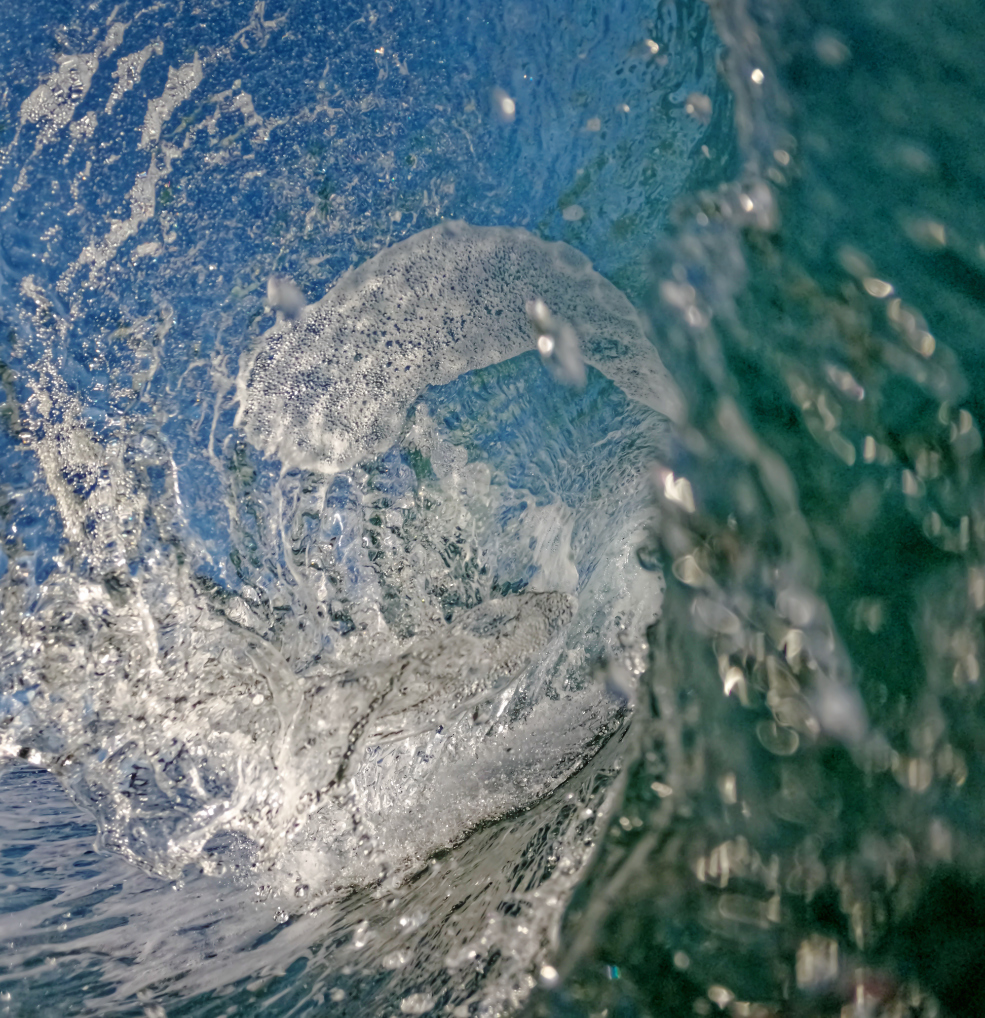
Interview: Elsa Rivera
To listen to the interview, scroll to the Player at the bottom of the page.
"... my whole neurological being, body, mind, and spirit, is enhanced when I get in the water. And when I come out my perception, my storytelling about any particular "problem" is, it's just redefined.
I don't sweat the small stuff."
~Elsa Rivera
Interview Transcript
Intro
Maia: My name is Maia Dery. This episode impart of a series called the Waves to Wisdom Interviews. The project is a simple one. I seek out people I admire, surfers with what look to me to be ocean centered wisdom practices. I ask them if they’d be willing to share a surf session or two and then, after we’ve ridden some waves together, talk to me about their oceanic habits: about surfing, work, meaning, anything that comes up.
Elsa: Seeing these grown women who can connect with that joy inside themselves even with, when they’re on land, even on the dry sand telling, sharing stories about why that it’s possibly not for them, or it’s too fearful because they have circumstances at home that has have oppressed them, suppressed their joy somehow. They have access to that by getting in.
Maia: Elsa Rivera is a devoted surfer, committed community servant, immigrant, and successful business manager. Our conversation took place overlooking the Pacific on California’s incomparable Central Coast. We’d ridden the chilly waves of a spectacular stretch of shore where graceful arms of kelp and barking, splashing marine mammals can make you feel, for a moment, like you’re a part of a vast ecosystem, a thriving planet abundant with life.
Elsa’s clarity of priority and purpose, and the role her relationship with the ocean plays in that clarity, add delicious nuance to this ongoing story of the power and plain utility of cultivating and stewarding a relationship to the ocean. Welcome to Waves to Wisdom.
Maia: If you are comfortable with it would you tell us your name and age and where you live?
Elsa: Elsa Rivera, I’m 55 years old and I live in Monterey California
Maia: Excellent and did you grow up in Monterey?
Elsa: I’m originally from Columbia. I grew up in Columbia until I was nine and then till 1981 I grew up in Santa Monica.
Maia: This morning we surfed together for the first time
Elsa: We sure did
Maia: We did. We surfed at Asilomar. It’s a place that I have watched people surf before and it’s always been remarkably intimidating to me it seems, well it is very rocky and it also seems prone to wind, and changes… conditions change out there rapidly but it was fun we had a great morning!
Elsa: Definitely! Ah, it’s gorgeous, gorgeous out there.
Maia: And I took off on some waves that scared the heck out of me and that was good.
Elsa: Looked graceful doing it.
Maia: Thank you very much, you’re kind. Let’s see, we were paddling out maybe after a wave or just after having met, changing locations and we both spotted a harbor seal in the top of a wave…
Elsa: My boyfriend…
Maia: Your boyfriend, tell us about your boyfriend.
Elsa: My boyfriend, the same harbor seal, I’m convinced, shows up wherever I surf. I watch him signal to me to move away from rip currents and, kind of, spots to catch good waves.
Maia: That is fantastic! I think I need a boyfriend just like that.
Elsa: You have one actually.
Maia: OK, good! Thank you!
Elsa: He’s out there.
Maia: And we’re, we’re at the beach right now. Can you tell us a little bit about where we are talking to each other?
Elsa: Yeah, this is Del Monte, this is a part of Del Monte Beach and it’s a long, it’s one of the longest stretches of beaches in Monterey.
Maia: And how long have you been surfing?
Elsa: About a year and a half. I’d uh body boarded most of my early teenage life and so I was, I considered myself somewhat of a waterwoman because I never drowned in the ocean.
Maia: You tried and you clearly must of liked it because now you look completely proficient I couldn’t believe it when you said you’d only been surfing for a year and a half.
Elsa: Thanks a lot. For that. Oh yes, absolutely, I loved it from day one and I would just pound my way through whitewater just to get that feeling over and over again and just felt like I could do anything if I could surf.
Maia: I think that many of us feel that way and it seems to be mostly true.
So you have a relationship with the ocean that predates your surfing experience and you were body boarding from childhood, can you talk a little bit more about the role the ocean played in your life as a child?
Elsa: I grew up in Santa Monica, as I said and didn’t know for a long time just because of life, family circumstances that I was so close to the beach and right before junior high I realized that I could just walk to the beach and it was less than three blocks away, long blocks because there were a few hills, and I went to the water for solace. I felt like that was my safe place that could wash away some of the darkness I felt as a very young girl in my family life and at home and in my mind the ocean, being at the beach, and being submerged, even tossed around and tumbled in the in the water was my heart home for me.
(5:41) Maia: So it made you feel better even, even as a youngster [yeah] to get in the ocean?
Elsa: Yeah, I felt embraced and felt enveloped with this almost universal love that my heart was needing and hungry for. And that was my first feel of being embraced.
Maia: Wow, that is a powerful memory and you’ve maintained a relationship clearly and in and continue to enhance and develop your interactions with it and you said to me earlier when we were in the water and again talking just a bit before we began to record that it is a profoundly spiritual relationship for you, from your point of view. Can you talk little bit about your spiritual background and then how the ocean came to play into that?
Elsa: Yes, so I grew up in a very traditional Latin Catholic family and expectation of being, um an awareness of God being a very much Catholic, church-defined, is the best I can say it. But I was drawn to the feminine energy of Mary, the Virgin Mary. I didn’t really think she was a virgin but, so Mary, Mary was just a feminine symbolism in the Catholic Church that I, that I was more drawn to than the male God that was described to me and, over time I went to different churches and at, hidden from my mother, just to try to articulate what I was feeling about believing in a, maybe a greater force or greater spirit of life, without this other definition and I didn’t really find it in churches. But I, I felt at a very young age that I had spiritualism in me rather than Catholic faith and over the years the ocean has become more of the spiritual connection to a life force for me and some of that is defined with my recognition of an ocean deity who I know as Yemanjá and in many Latin and Afro religions. She is the deity of the ocean, she is the mother of life force and so I connect with the idea, the concept of the ocean being a feminine energy, a life source energy, emotional, spiritual, giving. And I, I learn a lot that way.
Maia: How did you learn of this ocean deity and, and, and did it resonate with you immediately?
Elsa: Absolutely immediately. I had come to know about her through, um, the Yemanjá Festival in Santa Cruz and I began to read about her and she became more and more pronounced in my life when I spent 18 months in Brazil. Yemanjá is very much revered in Brazil. There’re rituals, instead of just celebrating New Year’s, the month of January is dedicated to ceremony and rituals in honor of Yemanjá.
And then recently going to Cuba I was part of a casa paticular which is just a place in a person’s home that you rent, where during the week they were doing rituals to, for chosen people who be.. who would become saints in Yoruba religion and they spoke a lot about Yemanjá and her mother Oshun. So in Cuba and in Brazil there are many ocean deities and whoever you resonate with is your deity, like, only you know.
Maia: Interesting, you have a lot of control over who you choose to honor.
Elsa: Yeah, um, well she chooses you, she reminds you that in by way by demonstrating how inspired you are, how motivated you are to learn about her, to know that she’s, she’s your deity.
Maia: Daughter of Earth and Sky, Yemonja is a diety from the Yoruban tradition, which originated in present day Nigeria but took root through the Caribbean as the Atlantic slave trade spread Yorubans far from their homes. Britannica says “Yemonja has been likened to amniotic fluid, because she too protects her children against a predatory world.” Her name is derived from words that roughly translate to “Mother whose children are fishes” and she’s the protector of those on and in the water.
Maia: So since learning about Yemanjá… Now you have this focus, a way to think about, read about, learn about this relationship. Can you talk about maybe the ways that your relationship with the water in your opinion has played out in your life story?
Elsa: I feel that to this very day the ocean has taught me about the, the varying tides of emotions and experiences and the lack of permanency in our lives. To be very present-moment because once you’re in the ocean you, there’s very little you can actually process, think about, the mind chatter stops because your survival sometimes is based on your ability to stay aware of the sites, sounds, smells, ocean currents, what’s happening with other people and that becomes a very present moment existence and again just be happy about, whether you have small waves or big waves, if there’re waves at all, that there is an ocean at all to be the life force, that, that that moment is, the joy of that moment is not defined by the size of the wave but the ability to have the freedom to even be in the water.
Maia: And then getting out of the water in what ways does that practice, in what ways do those experiences manifest, do you think?
Elsa: It’s almost instant application. That– I subscribe to that Blue Mind experience. It says that my whole neurological being, body, mind, and spirit is enhanced and changes when I get in the water and when I come out my perception, my storytelling about any particular, “problem” is, it’s just redefined. I don’t sweat the small stuff. [Laugh] and that, like waves, emotions, especially high peak or low emotions, can just be watched and experienced without any sense of control, leaning into ‘em, like kind of how you lean into a wave to catch it. Just being able to be gentle with yourself and not push any extremes.
Maia: You told me a story. This is a terrifying story, about going surfing at night. [oh, yeah] Could you tell that story?
Elsa: Yes. So I challenged two other mermaids to go to Asilomar, your now favorite break, during a super moon. It was a beautiful, beautiful night. The moon was very, very bright on the beach, it was about 11:30 and we wanted to get in by midnight but the ocean was very, very black and tumultuous lot of seaweed too that day and high tide so I thought it was really smart and following a friend’s advice by making sure we all wore white T-shirts or white shirts so we can see each other in the darkness and I happened to choose one that was really too big for me. It was a men’s size medium or something that I got given to me in Brazil I thought this is good to be a good one I don’t ride, I don’t bike ride so this where I’ll be able to to use it. So we paddled out and we had to really punch through the whitewater quite a bit and the other two women had gone further before my, my board just jumped up against the, the lip of the wave and it tossed me backwards and tossed my shirt over my head and I began to essentially suffocate myself with my shirt and much like what she has taught me in the past, in other experiences about trust and submission, I just really let it, let myself go. I knew I could float to the top. There was something that I knew in that trust, that I could also just let, allow not breathing so hard and suffocating myself with my shirt, that would allow the shirt to float as well and that’s how I got air back in my lungs. I surfaced and tied the T-shirt back up pretty tightly so I could go right back in and not be afraid.
(15:29) Maia: What was it like surfing at night when you couldn’t see the waves?
Elsa: It was terrifying and beautiful, and mystical all at the same time because all your other senses wake up. You’re, you’re feeling the current in a different way. I, I was trying to explain to partners that were there that I could smell the seaweed exposed to air when the wave was forming or curling over us because I couldn’t see it at all and each of us had different experiences about how our senses woke up differently.
Maia: What an amazing memory [yeah] really just calling that up even through your memory I am amazed that you had the courage to go out there and do it and that you discovered these things about the way your senses interacted with the darkness, that sounds profoundly instructive the rest of the time when you can see.
[Exactly] We are missing so much because so visually dominated [yes].
Elsa: I’ve never seen the ocean so black, which was just gorgeous. And I’d do it again.
Maia: And you’d do it again? Then you probably will. [LAUGH] Good, and what, what is your profession, your professional background and has your relationship with the ocean do you think played out in that part of your life at all?
Elsa: Oh, yes. I’ll say that I was inspired as a very young girl to become a nurse practitioner, I wanted to be a midwife actually. And so that propelled me into actually becoming a direct patient care nurse and when I moved to Monterey I got my Associates Degree and continued with patient care and in-home care and decided that this is an avenue of nursing that was very much interesting to me in that it was a holistic approach to taking care of patients at home. So ultimately I ended up transferring my skills to healthcare administration and I ran a local home care agency for about 25 years.
Probably into my 24th year I realized that I had overstepped that caregiver to caretaker, part of myself that couldn’t say “no” when I was on call for a year 24-7, just really overdid it on the whole caring part. And I just reevaluated the fact that I could, I could really give, be of service in different ways and translated some of the stuff that is familiar or similar in all industries and administration and offered to help run a business of my friend’s for 18 months in Brazil with a completely different kind of industry, laser technology. So it was no longer direct patient care, didn’t involve patients, but ultimately resulted in a purposeful time there, helping this person understand the differences in, about the Latin culture and imposing corporate, Americanized ways of doing business in a country that was refusing to accept them.
Maia: Fascinating.
Elsa: And so that’s what I’m still doing, I’m doing business management, I outsource myself when people are short a CEO, an administrator in healthcare, a business manager, and other industries and I limit and I choose wisely and very specifically the type of clients that I, that I have because I feel influenced by what I’ve learned about the ocean and wanting to be in it all the time, that the quality of my life is not about what I do in my work, work is a means to an end just for the survival that’s important to all of us. But my life sustenance, my joy is really about two things, and that’s giving in my community to the service projects and continuing this, ever expanding lifelong relationship with surfing and the ocean.
(20:05) Maia: Another topic that you broached which I find fascinating and I work with young people and most of them, although many of them are going six figures into debt, most of them don’t have any idea about how important money is in their life and you, you talked a little bit about that in the surf session but would you talk a little bit about it, and the relationship with money which you already sort of brushed up against in terms of career but how important healthy relationship with money is to the kind of life you’re describing?
Elsa: Yeah, that’s actually another water symbol for me because I really do believe that that money is currency. I feel like I have a healthy friendship with the concept of money. I’ve made a lot of money in my life and, and I was comfortable with all my little, little creature comforts and stuff but really I define having money as a form of movement and freedom, which is a current, that I can have current in my life. So I worked really hard and very intentionally to remove all debt in my life and it, it allows for me to have a relationship with money where I don’t have a neediness to make money but I can choose to make money for exactly what I need for a plan or for the immediate moment and have more of my freedom than enslavement to the concept of making money.
Maia: And you are the mother of two children [I am] Your son, you tell me, is a big wave surfer?
Elsa: Yes, he is, he started, surfing was his deal so that’s why I didn’t surf for a long time, that was his sport. I was a surf taxi mom for most of his teenage years. He actively competed and he is still mostly just a big wave surfer.
Maia: And you, you clearly are fine with that, and trust him to not hurt himself.
Elsa: Yeah, I do. I was thinking that what I used to joke around with him when he, he went to Mavericks when he was 17 years old but didn’t tell me that he was going until afterwards and I said, “What was that like?” and he said, “Well it’s like falling off the 65 story building and then having it come on top of you afterwards.” So I sent him, “Ever think of taking up, you know, an indoor sport like chess?” but I never meant that I never meant it.
He was a boogie border and I went to Asilomar one day he was boogie boarding and I just got inspired and we have this thing now in life that whenever there’s something that we need to have a rite of passage about very close we’ll just say, “It’s time.” and so I went to Sunshine surf store over here and bought a board, I didn’t know what I was buying and I showed up at Asilomar, he’d been boogie boarding in the I was a standing on the beach with the surfboard and he said, “What, what are you doing, Mom? What’s that? And I just said, “It’s time.” and I gave him a surfboard [Wow] so I figure he said he said it best, he said people say, “Aren’t you afraid of sharks or getting hurt out in those big waves?” And he said, “Have you seem what’s on the street lately?” Even at a really young age he knew that the ocean was his safety spot too.
Maia: So smart! [Yes] and clearly you both share that love of the excitement and the ocean, all that it has to offer. OK, is there anything else about your relationship with the ocean or the way that surfing or being near or in or on the ocean has impacted your life that you’d like to share?
Elsa: I think it just goes directly to my experience teaching young girls to surf and through that vehicle empowering their, conquering fears and having a stronger self-esteem. Where I’m drawn to expand that, and I feel that I’ve been really successful at it and not successful like in the competition, competitive way but more like watching the same effects with older women or grown women, is taking women into, into the water for the first time. One story I’ll share is that one of the moms had been on the beach for a while. They came all the way from Greenfield and all the way I’m talking less than 45 minutes away but they’d never been to the beach, they’d never seen the water, and she kept talking about, “One day I’m going to try that. I’ve only been in the water up to my knees in the swimming pool.” and I, I didn’t even focus on , “Hay, I’ll teach you how to surf, or any conquer, help you conquer the fear of water, I just said, “Ever put on wetsuit?” She said. “No.” and, um, “I said, “That’s half the battle right there, want to try it?” So, then she was in a wetsuit and she talked about, while she was putting her wetsuit on she talked about her body being too big, she really needed to work out more, she was out of shape, all these body image things that are pronounced in women everywhere that we’re trying to change, in a wetsuit especially, that’s one of the reasons I love surfing in this area because we all look like seals and there’s, there’s not an immediate, competitive body image thing going on. So, so I tell her,
“Well, I’m a professional round person and I love my body and I like looking like a seal and, and seals like the water so we can just go try it.”
And so she was really tentative but I said you’ve already gone as far as your knees, you want to try that?” We started there. I said, “You know, one of my favorite things when I was a little kid is jumping waves, want to to jump waves?”
“Oh, okay maybe, I don’t know.”
So we started to jump waves. And the same delight in this 48-year-old woman’s face that we see in the six-year-old faces began to take over her and then she wanted to jump more waves. And then we thought maybe we could jump a wave and then go under a wave.
And it was just this progressive thing but really it was allowing someone to be in their kid again to play in the water and then she wanted to get down to business. “What about his board thing?” And before we knew it we spent quite a bit of time just having her now jump waves on the board and feel just that floatation and she just kept saying,
“This feels so good. I’ve never felt anything like this, I feel free!”
And that just continued throughout her whole experience and when she got out of the water, um, she said, “What can I do to practice my pop-up?” and I told her draw a surfboard on her on the floor with tape and all her kids and her can do pop-ups and all this other stuff. This woman just had so much joy that resonated through the entire time she was on the beach and every time I see her that same look in her face and she thanks me and it’s not even about that but she just comes to me with this feeling of like, “ I remember that joyful moment” whether she does it again or has the opportunity because of whatever obstacle she had before to continue, she’ll always have that experience that, that will relive itself and that’s very powerful.
Maia: Joy in and of itself is so powerful. It’s fleeting in its way but just to know that you have the capacity for that. [Yeah] especially as an adult [Yes] you may have had life circumstances that for one reason or another have separated you from that feeling [yes]. It really is a powerful force and it can do profound work in the world, when you get in touch with that.
Elsa: I believe that! I believe that. Seeing these grown women who can connect with that joy inside themselves even with, when they’re on land, even on the dry sand telling, sharing stories about why that it’s possibly not for them, or it’s too fearful because they have circumstances at home that has have oppressed them, suppressed their joy somehow. They have access to that by getting in.
Maia: After Elsa and I had this conversation her relationship with the ocean and desire to include others in its benefits lead her to an organization called GI Josie.
GI Josie’s mission is to provide single women veterans with an environment and opportunities that eradicate the suffering and suicides arising from the Post-Traumatic Stress Disorder and Military Sexual Trauma that these vets often suffer with as a result of their service in the U.S. Military.
Elsa is profoundly influenced by the work of J. Wallace Nichols, a marine biologist whose most influential work popularizes research showing the mental and physical health benefits of being on, near, or under water.
Elsa launched GI Josie’s Bluewater project which gets these women on the water, sometimes to learn to surf, sometimes just playing in the waves or learning about the ecology in a local wetland. Many of these women Elsa is able to serve in the program face significant challenges. One veteran who had been bound then sexually assaulted was upset by the similar feeling of the tight wetsuit on her wrist. Ultimately she rolled up her sleeves and got in the water. Hers is just one of many similar stories of service-related trauma, too many of which don’t have happy endings.
To help the women overcome their initial fear, Elsa tells them about Yemanjá and asks her to protect each of them by name. GI Josie is actively fundraising to build a residential ranch to allow these women and their children to transition back to healthy, productive civilian lives. I’ll post information on the website so you can learn more and, if you’re able, make a donation.
Maia: Okay, so you also related to me earlier this, this just intriguing and artful interpretation, tell me that the ocean deity’s name again [Yemanjá] this interpretation of what is Yemanjá’s storied vanity.
Elsa: So Yemanjá of all the deities is considered a very vain deity and I dance Samba, so there are several songs dedicated to Yemanjá and uh we use mirrors and use our hands very much like hula to tell the story of her adorning herself at all times and wanting to be adored and wanting adornments and in the world and in religion people have taken that to an extreme by getting actual offerings to Yemanjá in different parts of the world. In Cuba, people offer animals, slaughtered animals, and toss them in the ocean as as an offering to Yemanjá. In Brazil people build small boats and they put jewelry and coins, and food and lipstick and all these things, which break my heart in a way because they’ve taken a materialistic approach to the concept of her vanity. But in my widening and aware need for, to be a part of conservation of the ocean and beaches, I see that as just a very, very simple, powerful request from her to keep her beautiful. To let, let those things that already naturally adorn her, the animals, the kelp, the shells, those things that belong to her, preserve them so that she can just continue to be beautiful.
Maia: One of the reasons that struck me is that it sometimes seems to me in my optimistic moments that we are in the process of and I work with young people and it feels like we’re the process of turning some kind of a corner in which maybe out of necessity because they know that their material lives are not going to be what their parents’ and grandparents’ were, that young people are turning towards experiences as markers of success and a life well lived in a way that causes them to turn away from material possessions but that, that kind of value and it’s, it’s absolutely understandable why in a world where struggling for material well-being at the most fundamental levels, you would give, give up things which were so hard won on to the deity that was most meaningful to you and it, I can’t wait for other people to hear your interpretation because it’s not just the interpretation itself that is powerful but your willingness to, to understand, to see what this story has to offer you not in the way of dogma but as a way of connecting with the needs that are all around you as you move through this, with this world.
Elsa: Yes, yes, she’s not really wanting for people to give her more stuff but to see their own duty in approaching her, preserving her so that they themselves can get her life force in her and her life sustenance in return, so less is more. She already has everything she needs.
Maia: Yemanjá has every thing she needs but clearly our oceans are in trouble. Elsa’s story and her work with GI Josie is not rare but could be much more common. Many of us know from our own experience the healing power of water. The Blue Mind concept I mentioned earlier, along with the book that bears the same name is a great place to start if you’d like to learn more about research explaining the effects of water on our brain. In the coming weeks, I’ll post about some of the research that tells the story of what happens our water-loving experiences through a scientific lens and the work that’s underway to show that surf therapy can be more effective than other forms of treatment.
If you’re enjoying these interviews, we’d be most grateful if you’d post a review on iTunes. Our next retreat is scheduled for March of 2019. If you’re interested in learning more or if you know of someone who works with a business who might be interested in sponsoring this podcast and reaching our growing audience, please drop us a line at info@wavestowisdom.com.
Sharks, painting, and patience
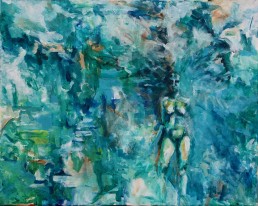
Joanna Frye, Untitled, 2017, Acrylic on Canvas
Sharks, Painting, and Patience
In our interview, artist and frequent ocean buddy Joanna Frye and I discussed the release from creative responsibility that comes with surfing. She said that when she surfed it felt like she was being painted instead of doing the painting. There is still plenty of creating going on when you surf or play in the ocean, it’s just not all coming out of your own limited human imagination and skillset. It’s not all dependent on your work. For those moments in the waves, you can’t even begin to lie to yourself about being in control of life, about dominating the world, or forcing an outcome. But you do, eventually, achieve some sense of control of your relationship to yourself and the uncontrollable.
Playfully, creatively tapping into a wider, deeper and, if you prefer, higher power is a practice that can, over time, change your mind and could do so, some neuroscientists think, by measurably changing your brain.
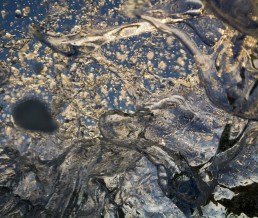
The research about the plasticity of our brains is thrilling but I don’t need a neuroscientist to tell me this: to catch a wave requires presence and acceptance: you can’t hurry things, or waste time thinking about the past or the future, or wish they were easier or more interesting. There just isn’t time for that. Not if you want to be there for that ride, to feel the rush and lift, and respond in whatever way your own body will allow, to be with that force for a delicious instant, to feel the joy of being on a planet with gravity instead of putting your creative energy into the futile task of working to somehow defy it.
One of the 20th Century philosophers I think is worth wrestling with is Maurice Merleau-Ponty. He wrote that “[t]rue philosophy consists of re-learning to look at the world.” It’s a pretty inclusive definition and seems to include those of us who are honest and brave enough to know that we need to revise our vision as we, our insights, and the world change. Merleau-Ponty’s work focused on that instant of perception, a sliver of time before our scientific, categorical mind can take over and begin to catalog, dismiss, prioritize, and judge. He thought this moment of perception was the beginning of all creativity, all art.
He wrote that “it is the expressive operation begun in the least perception, which amplifies into painting and art.” He also thought painters were uniquely well suited “amplifiers.”
Carolyne Quinn wrote a wonderful, accessible article about Merleau-Ponty’s work on perception and painting. Quinn writes that, for Merleau-Ponty “meaning is not found pre-existent in the world but is called into existence by the body’s own activity in the world.”
Merleau-Ponty’s work is more popular since his death than during his life because, as it turns out, his writing is more relevant to what we’re learning about our brains now than what we knew about them then. Think about it. If he’s even a little right, and we are dependent on our sensing bodies to help create meaning, what are our hyper-stimulated, scanning, swiping, fractured, and busy days doing, not just to our bodies, but to the meaning we call into existence in the world.
Quinn describes one of Merleau-Ponty’s most inspiring ideas, something called “reversibility.” Merleau-Ponty thought our body is both an entity that senses and an entity being sensed, and not just in the way your body is busy seeing and being seen by other partially dressed humanoids on the beach, but in the touch of a tree or a rock or a wave. You can be altered by the wave and the wave by you. Everyone who plays in the ocean knows this to be true. Merleau-Ponty just expands that intuitive understanding to encompass all perception. He thought that to understand either side of perception- being touched or touching, we needed to know they were not wholly separate, not either/or, and not one and the same. Instead, they overlap, both always part of any perception we have of the other. He thought most of us walk around with limited vision that ignores much of the rich, invisible depth of being sensed by the other. But not painters. According to Merleau-Ponty, while the rest of us (including photographers) couldn’t get at the real substance of perception, painters could render the invisible visible to the rest of us. Their paintings had the potential to render some of this fluid motion, this oscillation between seeing and being seen.
Because I live on the coast, because it’s the discipline at the center of my work and life, because it makes me feel sane, and is just too damn too beautiful to miss, I get in the ocean almost every day. A few weeks ago I hurt my rib in an unlucky fall and, while it’s been healing, I’ve been going in with my camera instead of my surfboard, photographing in the small, late summer waves each dawn and early morning. There are fewer black skimmers and the fish are starting to return in droves, each peaking shore break wave filled with dozens. My own species has begun its daily turtle walks. One one level, they’re out there looking for signs of nesting. But really, I think they are looking to call the meaning of hope into existence, walking with the hope that, for some perceiving moment in the future, they might dig a trench or hold a light that could help hatchlings, endangered as individuals and species, along their way. Even if they don’t save every turtle, they might save themselves.
Today, between sets of waves, a small shark swam from behind me, passing me on the right at a slow, leisurely pace— maybe there’s food aplenty. Rushing isn’t a priority. It must have seen me before I saw it, just so much inedible flotsam.The moment I saw its fin break the water, that instant of perception before I could categorize, the moment when my animal brain registered its size relative to mine (it was tiny, maybe 2 feet long), at its presence in the water, right there, with me, seeing me, and the resulting elation I felt at being seen (if it had been 2 meters long, I expect my perceptions might have been… different),— all reminded me of both Merleau-Ponty, and one of Joanna’s paintings that hangs on my wall, one that evokes something of immersion in liquid and light and motion, just like this morning. Reminding is a word we often say but don’t appreciate. To remind yourself is not just to recall, but to restore your mind to something valuable. I love that painting because it feels like the dissolution that happens to me in the ocean, the unimportant stresses and worries gradually losing concentration until they wind up just disappearing, and, even if they return, the wisdom and perspective that comes from the their intermittent disappearance endures.
Philosophers have been imploring us for a long time to learn to accept what we can’t change. The Stoics of Ancient Greece did it. Some Buddhists did (and do) it. The Serenity Prayer does it. But most of us still suck at it: quick to irritation or anger or a wish for a trap door into which you might dispense with or exchange the reality of the aggressive driver, the glitchy gadget, the broken rib- there are so many situations in our daily lives that regularly, reliably immerse us in stress, even when everything’s going “right.”
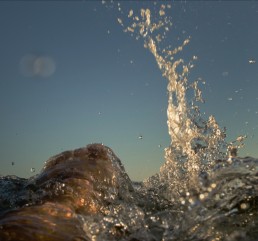
As soon as I realized my rib was well and truly hurt, that I might miss weeks of surfing these beautiful summer waves, I panicked. I didn’t want to miss waves. This was a disaster.
A minor one my brain scolded.
My feelings did not obey.
I began to focus on speed healing. Googling nutrition and bone injuries, stocking up on vegetables with Vitamin K (green cabbage has twice as much as red), doubling up on magnesium supplements, uncovering the miracle of comfrey (which is pretty miraculous). Maybe it was just a bad bruise and would be surfable in a few days?!? A couple of false starts over the next week helped me settle in. As a wise yoga teacher once told me, “If you get into a fight with your body, you are going to lose. Every. Single. Time.” Recovery would take exactly as long as it would take.
One of the primary, foundational motivations for this Waves to Wisdom project is finding ways to let others in on one of the central, grounding, and most useful working theories I’ve figured out in a long time spent figuring: our bodies and their perceptions are primary to what we create. What we experience when we are at play and deeply at home in our bodies, when these bodies we all have feel integrated into, even continuous with our larger home on the planet– these moments can be lessons that recast our lives; even the objects, people, and relationships that seem utterly familiar to us. We can perpetually see them anew and, in turn, be renewed in their eyes. The ocean is one particularly exciting and beautiful way to learn these lessons.
If, on the other hand, we spend all of our time scanning, slouching, and constricting, or dominating, forcing, and demanding, we can’t help but create meaning and methods to match. We value what will entertain or enrich us in our slouch instead of allowing ourselves the benefit of experiencing life elongated, expansive, fully oxygenated, and open to what’s right here and far away, open to the interdependence of self and other. We all sometimes allow the endless stream of information and news and wellness advice to overwhelm this moment, the only one we have, the one we don’t get back, the one in which someone nearby, a tree, a turtle, a neighbor, maybe even we ourselves, could benefit from some awareness of seeing and being seen.
That shark was today’s teacher and the painting it somehow called into my awareness the fortunate ongoing reminder of the lesson. I’ve been looking at it for a long time but I saw it anew today and it wasn’t anywhere in sight. I realized, without words, with the flick of the tip of undulating fin and tail, why I’ve loved it so much. That instant of sensing, of being sensed, being part of what Davis Abram calls “the biological matrix of life on the planet,” and being a person fortunate enough to return to walls and art and one painting in particular, was an exquisite episode of “reversibility.”
I owe that “unlucky” fall for the gift of this day sitting at my desk, rib healing, with the painting about as far away as the shark was, seeing me see it with reminded eyes.
For us too, if there’s enough food, maybe rushing doesn’t need to be a priority.
For information about retreats or to set up a free coaching session email maia@wavestowisdom.com.
Sources
Abram, David. “Merleau-Ponty and the Voice of the Earth.”Environmental Ethics, volume 10 (1988), pp. 101-120.
Cheron, Guy. “How to Measure the Psychological ‘Flow’? A Neuroscience Perspective.” Frontiers in Psychology 7 (2016): 1823. PMC. Web. 31 Aug. 2018.
“Maurice Merleau-Ponty (1908-1961)“. The Internet Encyclopedia of Philosophy
Staiger, Christiane. “Comfrey: A Clinical Overview.” Phytotherapy Research26.10 (2012): 1441–1448. PMC. Web. 31 Aug. 2018.
“Stoicism.” The Internet Encyclopedia of Philosophy
Quinn, Carolyne. “Perception and Painting in Merleau-Ponty’s Thought.” Paris III, Université de Sorbonne-Nouvelle/University College Dublin
Why a Waves to Wisdom Retreat?
purpose (n.)
c. 1300, “intention, aim, goal,” from Anglo-French purpos, Old French porpos “aim, intention” (12c.), from porposer “to put forth,” from por- “forth” (from Latin pro- “forth;” see pur-) + Old French poser”to put, place” (see pose (v.1)). On purpose “by design” is attested from 1580s; earlier of purpose (early 15c.).
clarity (n.)
c. 1300, clarte, clerte “brightness, radiance; glory, splendor,” from Old French clerte, clartet (Modern French clarté) “clarity, brightness,” from Latin claritas “brightness, splendor,” also, of sounds, “clearness;” clarare “make clear,” from clarus “clear”
From etymonline.
“What is it that you plan to do with your one wild and precious life?”
If you already know this line (and the Mary Oliver poem that ends with it), when did you learn it?If you don’t know it, it’s copied at the bottom of the page. Read it (preferably several times) when you’re through with the post— you won’t be sorry.
For me, that question, instead of demanding an answer, cleared a lot of automatic junk answers out of the way. The poem left me with a new view, informed by vastness, as well new dimension of understanding about attention to the particular. The full-bodied sensing and responding to ephemeral minutiae that began with (but didn’t stay limited to) my longtime photographic practice was, or at least could be, sacred.
But this alteration in vision didn’t happen immediately. This is a question to be lived, to embody, not just to answer. I encountered this poem in the late 1990s. Where were you then? Oliver’s poem gave me language that, with silent repetition, let through a sort of light that left everyday choices looking different, altered, more abundant, and less prosaic. It gave me a kind of faith to take on a designer’s role in my own life to keep asking the question of myself, my choices, and most of all, the consequences of those choices. Then, when necessary, course corrections where just revised, renewed, perhaps wiser ways of asking the question.
But, as I said, this was in the 90s. I was living in a world where you still chatted with the person in line behind you with your mouth, not your thumbs. You went home from work and didn’t mindlessly keep tabs on what people at work were emailing, posting, doing, not doing. Maybe you took your book to bed but taking your phone to bed was not a thing. There seemed to be more time then. Less to do and more quiet to contemplate the reasons to do the things one did undertake.
It wasn’t a Golden Age but it was a more spacious one. I’m wary of prescriptions and recipes of all sorts but I know this, taking some time from the habitual reactions to the demands of others is a crucial practice for maintaining and accessing creativity, peace, clarity, and purpose. For me, it’s always involved moving my body and letting my mind open— on long bike rides, runs, walks, hikes, swims, yoga sessions, and, lately, surfing. There are a lot of ways to learn to listen to the deep wisdom of your embodied intelligence and the silent, powerful questions and metaphors it’s asking you to consider every day.
I began guiding Waves to Wisdom retreats out of a desire to give you an opportunity to turn off Facebook and email and, for one precious, abundant week, put your own direct, rich experience of the world at the center of your days. It’s intentional time in an exceptional setting with space to reflect on what you are sensing, how it offers new perspectives on your life, and to develop language for these insights. It’s a chance to give voice to dimensions of purpose that might be hiding in plain sight. How do I know this will work for you? I can’t know that but, as you are reading this, I bet you know, even if it (especially if) the prospect sounds a little bit daunting, or downright scary.
We use beginner surf lessons, yoga, and reflection as ways to for each of us to mindfully inhabit our own bodies, to put our internal editors on mute for just a moment, to experience the unbridled joy of childhood when falling down wasn’t a disaster and practice (whether it was a favorite sport or a beloved instrument or even a favorite video game- Pong, anyone???) was a time for playfully pursuing improvement and not a way to “make perfect.” For the upcoming retreat in Costa Rica in March, we will spend he majority of each day resting, and reflecting. We will explore a bit of the lush, open hearted jungle community of Nosara and spend time in coaching sessions to abundantly nourish the wisdom that emerges from the experiences.
This morning, before writing this post, I called up one of the past Waves to Wisdom participants who, while loving the ocean play, decided she didn’t like surfing so much after all. I wanted to know what she’d learned from the retreat. With no hesitation, she said “clarity and purpose.”
These are, to my 50-something self— exceptionally demanding and often overwhelming times. There is so much wrong, so much at stake, so many ways to act. Time staring at the line where ocean and sky meet has been more important than ever for me to gather the strength to act. and the perspective to figure out, given who I am, what sorts of action make the most sense. In other words, clarity and purpose. At the heart of my purpose is a decades long practice of crafting ways to guide you into a deeper connection with yours.
If you come on a Waves to Wisdom retreat, you will play in some waves and, more importantly, you will take some time to stare at trees, watch the monkeys and iguanas, write some lines to yourself or make some photographs to help you guide your attention. This experience is transformative. But what transforms?
For one thing, your words change. As you allow the daily dose of sunrise over the green, enveloping, jungle-covered arms of land that hug Playa Guiones’s gently sloping, sandy beach to work their magic on what you notice, and how you give voice to that attention, as you carry our daily questions through the resting hours of hammock time, and the excitement of exploring Nosara’s bumpy roads and jungle paths, when you’re not even trying to find an important revision to a stubborn case of being stuck, one might just come to you.
You will return home with thoughts transformed by green waves whose water somehow dissolves the artificial barriers between your perceived options and your own purpose. In our world bounded by walls instead of seasons, ocean play is the most direct path I know to access the hidden, embodied intelligence that is likely right there, with you when you fold yourself into a chair or force yourself to the gym after a long day at work, or just collapse into the couch to watch Parenthood… again.
What won’t matter on this retreat is whether you ever stand up on a surfboard, or even decide to take one out with you. All that matters is your capacity to close your laptop, open your heart, get a little wet, and commit to yourself. Oh, and let go and have some fun!
The next opportunity for a scheduled retreat is March 3-10, 2018 in Nosara, Costa Rica. Early bird pricing ends September 15th. To inquire about custom retreats for your group, business, or organization, email maia@wavestowisdom.com.
I-Ocean: Part 2
On good afternoons, here at the blue metal patio table where I work, I lean back and close my eyes in search of some elusive word or idea and I can still see lines of swell coming towards me. To have this sort of oceanic wave overlaying one’s usual electromagnetic brainwave is a good influence. On days like today, when I’m practicing this discipline well, the refrigerator’s hum and the call of the Carolina wren nesting under the bedroom window are part of the same whole as the white noise of the rough surf punctuated by the scoop of resting skimmers. Skimmers must get tired their from long, low flights just above the water’s edge, open beaks dragging along the surface. Holding tea on my palate for a few extra seconds, I wonder what that kind of ocean practice must look like through their eyes and feel like in their beaks.
Over years of regular play, effort, and immersion, the ocean has given me new ears to hear and I’ve gradually become a better listener. It isn’t just the waves themselves or the liquid logic of other surfers I feel attuned to. The waves’ chaotic beauty and my own fear, innumerable failures and rare moments of accomplishment seem to have allowed me to feel more connected to just about anyone honestly grappling with big, powerful, overwhelming questions and forces. These days, that’s a lot of us.
Learning to surf is, as Ethan Crouch observed in the latest Waves to Wisdom Interview, “an ongoing practice.” For me, part of that practice involves being open to taking off on some unexpected, even uncomfortable rides, especially off the board. The latest was a difficult but immensely rewarding few days submerged in the writing of Martin Buber. Ethan inadvertently assigned the reading, in particular Buber’s book I and Thou (Ich und Du), when he cited it as one of his primary philosophical influences.
Buber was a Jewish theologian and philosopher who wrote the first version of I and Thou between the two world wars. I’m neither Jewish, theological, or even theistic but it’s precisely the creative potential of this sort of dis-orientation that lies at the heart of Waves to Wisdom. Our reactions to the unfamiliar and unexpected have equally unfamiliar and unexpected lessons to offer. I’m grateful to Buber for the intellectual and existential workout, and for the deepened appreciation for the time with Ethan.
In his introduction of Ich und Du (I and Thou), translator Walter Kaufmann warns that the original work, with its plays on words and unconventional use of language, is essentially untranslatable. Since my German doesn’t extend far past “bratwurst,” I’ll just have to trust him.
One of Kaufmann’s first tasks is to take issue with previous translations’ use of “Thou” for “Du.” Thou, Kaufmann, notes, is just plain stuffy. It’s true— when’s the last time you “thou’d” a loved one? As I understood him, one of Buber’s goals is to make a case for seeing with open eyes and hearing with new ears. He’s making a case for the importance and reward of spending all our days swimming in the waters of deep love and presence, a love that is all around us in the workaday world.
“Thou,” Kaufmann notes, “immediately brings to mind… God of the pulpits,” a power sequestered in the sacred sabbath. Instead, Kaufmann translates “Du” as “You”— the You of lovers, parents, true friends, and those who “pray spontaneously” to an intimate diety. Reading in the wake of working on the Ethan interview, this work is an evocative manual for accessing connection in a world that creates and pushes us into separation and fragmentation. Sow how do you do it?
Buber’s cornerstone idea is that we humans build our communication and, in the process, ourselves with the use of two “basic words”— I-It and I-You. We are always choosing between one or the other in all of our interactions with other people and the world. We speak these two basic words with our hearts, attitudes, actions and values and “by being spoken they establish a mode of existence.” Every time you use the word “I,” in thought, speech, or deed, you choose I-It or I-You and, in the process, alter the form of your self.
When we speak I-You we are intimate, open, and utterly present. We feel the You we encounter and ourselves as part of the whole, infinite, eternal You. Speaking I-It puts us in a place of distance, categorization, abstraction or analysis and we might see the other before us as just one of many, an object to be used or experienced.
Now, Buber doesn’t come right out and say I-It is terrible but the whole work is a lavish literary celebration of the benefits of speaking I-You as much as possible. Buber thinks no human is free from necessarily existing in both modes. Our lives are a combination and so are we.
The connection to Ethan’s life story was clear to me. I found his sense of what Brené Brown calls “true belonging” inspiring. In my work as a teacher, mentor, and coach and also in the messy beauty of my own life, I’ve worked to guide many people wrestling with how they could find or cultivate this sort of connection.
Buber runs right at the pervasive problem of loneliness and isolation in I and Thou and, as he’s a theologian, it’s no surprise that his suggestions are all embedded in a relationship to all that’s divine. He has thoughts about overcoming loneliness but this is no feel-good, self help prescription that could be bulleted into 10 takeaways that will make you rich and happy.
Feelings, in fact, are only a part of what he thinks is required for connection and community to thrive. He writes, “Loving community is supposed to come into being when people come together, prompted by free, exuberant feeling, and want to live together” but “that is not the case.” All members of a true community “have to stand in a living, reciprocal relationship to a single, living center.” For Buber, the word he uses to describe this center is sometimes the You-world and sometimes God. If my reading is accurate, we are both and both are us.
According to Buber, “The You-world coheres in the center in which the extended lines of relationships intersect: in the eternal You.” (p.148) In our interview, Ethan told the story of the extended lines of his own relationships with fellow activists. After working long, hard hours together to effect change or pass legislation on the ocean’s behalf, with no guarantees of success, Ethan realized what he felt for his companions was unadulterated love. There is I-You all over this tale.
These activists share love for and a desire to protect the ocean from further assault from those in the It-world who only use and measure it. It certainly looks as if the ocean might be functioning as the single, active center of the community. It is, after all, the biggest active center in our earthly corner of the cosmos. And, in Buber’s language, speaking You to it can be profoundly transformative.
But life can’t all be I-You. Most of us do work that consists of analysis, abstraction, measurement or categorization. We inevitably return to our desks, screens, and boxes. Certainly, as a construction consultant with a “passion for scheduling” (!!!), Ethan spends much of his time It-ing all over the world and that’s a good thing! Buildings need to be thought about, analyzed, categorized, and measured. But maybe his capacity to carry that active, oceanic center into his work world alters him and his relationship to his work for the better.
According to Buber, “Every actual relationship in the world alternates between actuality and latency… You must disappear into the chrysalis of the It in order to grow wings again.” But if the relationship is pure, “latency is merely drawing a deep breath during which the You remains present.” (148)
When Ethan talked in our interview about developing long term relationships with his clients, building public projects, and protecting his home stretch of coastline it certainly sounded as though the latent You of his regular, loving immersion in the ocean, in his words, “that experience with the Thou,” might form the breathing center of the his work life in the It-world.
As a theologian, Buber’s work is to understand, articulate, and study the nature of the divine. While the language of God (and especially the Fatherly sort) still gets my back up at times, a stance of reverence before the continual revelation of a relationship with a higher power gets more comfortable every time I get in the ocean with an intention to surf. I will not be in charge of what that looks like. Not ever. Each wave is more practice in understanding that predictions are rarely true, and even current happenings are bursting with implications we can neither fully perceive nor accurately assess. Analysis in the moment interferes with full presence and is sometimes worse than useless.
To surf as a wisdom practice, the ocean can’t be an It. To borrow Buber’s language, if we “observe it” instead of “heeding it” and “instead of receiving it, [utilize] it” then we’ve missed the most substantial, life-giving gifts it has to offer.
The ocean gave and gives us life on this planet. Gratitude before the giver seems not only polite but prudent. I’m intimately connected to it in my quotidian everyday, and it infuses me with a sense of connection, of belonging. The ocean is water with life in it and so am I. There it is easier for me to feel part of a whole, a You among the You. And its vast horizons and geological age are plenty close enough to eternal for my tiny mind. Especially when, fingers cramping and pen in hand, I lean back to stretch, close my eyes and see waves undulating towards me.
I-Ocean: Part 1
I-Ocean: Ideas for a good life from Ethan and Martin
Part 1
In the years I’ve been acquainted with Ethan Crouch, he’s always struck me as a person whose life has exceptional integrity. His broad, bearded smile is quick and welcoming, as optimistic as the the ancient Ford Bronco that waits open-windowed and unlocked while he surfs. He clearly loves riding waves but his habit doesn’t have the smell of escape. He seems just as motivated and fulfilled in the work life that takes up most of his days, and in being a leader in Surfrider, an activist network that occupies another substantial chunk of his time. So many of us believe our lives are built of discreet, even disparate spheres we have to work to balance or, worse, juggle. Not Ethan. It’s one of the reasons I was thrilled he agreed to a Waves to Wisdom interview.
Near the end of our conversation, he cited Martin Buber’s work I and Thou as one of the crucial philosophical influences on his life, not just as an undergraduate studying philosophy, but in his current manifestations as an open hearted but determined activist, a successful business owner, and utterly stoked surfer. Listening to our interview, you know Ethan Crouch works hard. You hear the joy he derives from what he calls his foundational practice of finding connection through surfing. Ethan has spent his adult life building on that practice and, in the process, found integrated connection with his community, his values, and his life path.
From my perspective, a crucial part of the Waves to Wisdom project is learning from the nimble, creative, open-minded acceptance that surfing demands. Building on those wave-born habits when I’m dry and landlocked, I look for ways to offer to others what I glean from these hard won lessons. That means staying open to any wisdom that surfaces from the waves and this last interview left me feeling like Martin Buber was, clearly, calling.
Part of the clarity arose from the familiarity of Buber’s name. Martin Buber has been a favorite of some of the most brilliant, passionate, and loving members of the community of Quaker-influenced educators and students I worked among for 17 years. It was among this group that it first occurred to me that perhaps I needn’t be afraid of Christians, a prejudice I feel mostly freed from. To be clear, Buber was Jewish but his work is perpetually popular among a subset of Protestants, including many Quakers.
My own spiritual orientation is somewhere in the neighborhood of aspiring animism although, like almost every single other person I know, or have ever known, I’m culturally, hopelessly monotheistic — forever looking for the one true source or method or path toward truth. It took me a long time to really feel the wisdom of what I believe Ethan means when he says that truth is like water, when you try to hold it in your hands it just squeezes out.
I knew Buber might be a challenge for me but I hoped I’d be open enough to learn what Ethan found so powerful and, perhaps, find something I could keep and then share. Some enduring practice or pattern in his ideas about the sacred and how to cultivate it in our workaday lives. After all, that sort of habit, of nurturing the capacity for powerful connection to perspective and purpose is precisely the point of Waves to Wisdom.
Plus there was Ethan. His business’s LinkedIn page reports that they have a “passion for scheduling.” In my mind, passion and scheduling go together like hot fudge and scaffolding… huh? I had things to learn. This fellow student of salt spray clearly has some priorities figured out and if Buber helped him get there, I wanted in on it.
I took a deep dive into this difficult little book, I and Thou, and will post something more substantial about in a couple of days. In the meantime, I can recommend it to anyone who’s interested in being challenged by ideas and language that is perplexing, beautiful, and occasionally revelatory. I was grateful for my own late life capacity to accept that Buber’s explicitly religious language might offer something of relevance to my own ocean-centered existence and passion for providing inspiration and guidance to others.
According to Buber’s translator, Walter Kaufmann, one of Buber’s accomplishments is endowing the social sphere with a sacred dimension. It doesn’t take much mental steam to see that our social sphere could use a lot more of that dimension right now. A great book is a great teacher and, as is that case with all the great teachers, the subject of the lesson is life.
Kaufmann writes:
“A good book or essay or poem is not primarily an object to be put to use, or an object of experience, it is the voice of You speaking to me, requiring a response.” (p.39)
This “You” is sacred and, in some sense, divine. Some might even say it’s God. I wouldn’t, and it was a bit of a struggle for me when Buber did. Kaufmann acknowledges that it might be better not to use religious terms “because they are always misunderstood,” and then issues an assignment.
“We need a new language, and new poets to create it, and new ears to listen to it. Meanwhile, if we shut our ears to the old prophets who still speak more or less in old tongues…we shall have very little music… Let him that has new ears listen to it in a new way.” (p.31)
More than any other force in my life, the ocean has offered me new ears.
I’m listening.
Interview: Lena G
To listen to the interview, scroll to the Media Player at the bottom of this page.
What would give you the courage to quit a good job, one you had worked hard to get, and always thought you wanted but discovered maybe wasn’t very good for you? And what happens when a German structural engineer reaches for surfing to help heal a broken heart and discovers an altogether healthier way of seeing and her living life?
Before learning to surf "I was the same. I spent a lot of money for things I actually don't need to impress people I don't like."
~Lena G
Interview Transcript
My name is Maia Dery.
This episode is part of a series called the Waves to Wisdom Interviews.
The project is a simple one. I seek out people I admire, surfers with what look to me to be ocean-centered wisdom practices. I ask them if they’d be willing to share a surf session or two, and then, after we’ve ridden some waves together, talk to me about their oceanic habits, surfing, work, meaning, and anything else that comes up.
What would give you the courage to quit a good job, one you had worked hard to get, and always thought you wanted but discovered maybe wasn’t very good for you? And what happens when a German structural engineer reaches for surfing to help heal a broken heart and discovers an altogether healthier way of seeing and her living life?
Lena: Oh my god, I remember these wipe-outs, I thought I could never do it, and then after two hours, so hard work, then you catch a wave and you’re standing on your surfboard and you think like, “Oh my god, I can do it! It’s possible.” and you just have to believe in it and don’t give up and this is the same in life now when I have moments where I’m struggling, like the bad things happen, I’m so sad, I’m lost and I remember surfing, and I know, no, it’s gonna be good, there will be, don’t, don’t look to the broken wave, to the whitewater, look, look to the horizon, in the ocean and there will be more, so many more green beautiful clean waves coming for you and you just have to wait and be patient
Lena and I found one another by accident, in the waves of Nosara, Costa Rica. We developed the sort of fast, thrilling friendship that comes from sharing passion for a beloved activity and intense experiences, both beautiful and challenging. The time we spent getting to know one another trading and often sharing waves in the gentle Pacific swells of that idyllic tropical surf break was inspiring and Lena’s story of crafting balance in her body and life taught me a great deal. I hope you learn something valuable as well.
Maia: If you are comfortable with it you tell us your name and your age and how long you’ve been surfing.
Lena: OK, my name is Lena, I’m now 33 years old I’m a Pisces, I think that’s why I love water and I am surfing since 6 years.
Maia: 6 years, OK and you are from Germany?
Lena: I am from Germany, yeah.
Maia: And we are speaking, we’re having this beautiful conversation in a magical setting [oh my goodness, yeah], will you tell whoever’s listening a little bit about where we are?
Lena: Yeah, so right now we’re sitting, actually, in the jungle, the sun is shining the temperature, sometimes I forget that it’s the middle of January, it’s so cold right now in Germany and we’re sitting, we’re almost don’t wear, like, anything it’s hot but it just feels wonderful on your skin and when I look up, like I see the sun shining through all this lush nature, it’s a simple place, it’s a little juice bar in the jungle and it just feels wonderful, it’s paradise.
Maia: It is paradise, isn’t it? Um, okay and this morning we surfed for quite a good session.
Lena: Oh my goodness, I didn’t expect that, like I was walking in the beach, I love to walk on the beach in the morning, it’s so peaceful, like when you walk outside, it’s warm, like 6 o’clock there is like the first sunlight and you walk to the beach and you see the sun rise and yeah, it was windy the morning but when you paddle out it was, the wave was small but so much fun.
Maia: It was so much fun.
Lena: Oh my goodness, and it just got better and better and so nice too, that we share this moment.
Maia: It really was, wasn’t it? And the moment we just shared I think bears repeating which is that I’ve been fiddling with this audio equipment for a minute and I swore I was putting the record setting on the right thing but I just couldn’t figure out why couldn’t hear anything through these headphones and you said, “Are those headphones plugged in?” In fact, they weren’t! Which is maybe a good time to talk what you do for a living.
Lena: Yeah um, actually that was a coincidence because I don’t know much about technique.
Maia: Yes, but there is something about, are the pieces fitting together right this year like a good introduction to the rest of your life when you’re not surfing.
Lena: Absolutely, I am a structural engineer at home, so I have a very serious job yeah, I love my job it’s a lot of calculation and math and right now I don’t think much about it but I know when I get home I will enjoy it again. So my life is completely different in Germany but I love to have this balance in my life.
Maia: You are here for how long?
Lena: I’m here for 4 month, so it’s just the best time to escape the cold winter in Germany. I don’t mind the cold so much but it’s so dark, yeah it’s dark and cold and rainy, so I decided to live during the winter here in Costa Rica for 4 months.
Maia: And how many years have you done that?
Lena: I started, you know it was a process. I came here the first, it’s my fifth time to Nosara, Costa Rica, I came here the first time 6 years ago only for vacation, for two weeks, and I fell in love with surfing and this place, so I came back a second time, only for two weeks, and then a third time for two and a half months, and now last season for four month, and this season for four month, and I want to keep doing this.
Maia: So, how does your life allow you, you are a structural engineer and I don’t know if you have this stereotype in Germany but in America we often think of surfers as bums [yeah] and structural engineers, we don’t think of as bums so how do you work out that balance?
Lena: Yeah, it was like it came to me, it was, I always, I enjoyed studying engineering a lot, a lot and then I started working for this company I always wanted to work for and I finally made it to work for this company but then I just found I’m working nonstop. I’m so, so hard with myself so, I forced, I wanted, I want to be good like, I always wanted to be perfect and do things perfect, but then I found after awhile, you know this is not healthy, so I need some balance in my life and I worked for this company three years and then I felt, everyone did that in Germany so it’s like common if you work really hard, so all of the people around me did the same, so they work really hard, um there was a lot of competition in my office and I felt a lot of pressure that I didn’t realize that it’s wrong, I just thought it’s normal to live like that. And then, just, things happened I, I was in a relationship for 11 years, and we broke up and then I got laid off from my job so…
Maia: All at the same time?
Lena: All in one year [within one year] that was such a hard time for me. I was so sad at I remember it was winter, it was cold and I, I cried for I think for three months, like I remember was taking my bicycle to work, and cried and at work I distracted myself and, and then at night I woke up, it was like a nightmare, it was, I didn’t know what, what’s happening next in my life, my life just changed in one second and I lost everything.
Maia: It’s the worst thing, so disorienting
Lena: I was so sad and by this time I felt because I have surfed before and I knew how I felt like being in the water and oh my god, surfing just made me so happy, on these two trips before with my ex-boyfriend to Costa Rica and the first thing I did, like, I booked a flight to Morocco, in the sun to go surfing and when I was sitting in the plane I remember when I felt so much happiness I was sitting in the water and in this week I didn’t cry all. I sent my ex-boyfriend a message that I am just so happy because, of course, at the break up was he left me, but it was also hard for, for him to see me being so sad because of course he still felt love for me [of course] so I send him the message, you know, don’t worry about me, I’m surfing and I just feel so much happiness and I even like, I’m thankful for all the time we had together and he brought me into surfing. So, I’m just thankful for the amazing 11 years we had together and it’s ok now I will make it and I knew I felt so much strength, like sitting in the water, and it was like the moment when okay surfing now is part of my life, I need it in my life so I came back from Morocco, I booked my second flight to Morocco and this year I went all my vacation I went like always surfing, I went six times, 10 days surfing, I spent a lot of money but I didn’t care. And then I went to my boss and I told him I just have hard time right now and I need this time off, I need to go surfing because it’s so good for my soul and because I lost everything I was so brave I felt, I was like okay, I’ll just do it, and he was, because this is really not common in Germany, he didn’t understand this like, “Why? You’re such a good engineer and you work so hard why do you do this you don’t need this.” and I remember yeah, because he has big passion with this Harley, with riding a Harley Davison so I told him, “When someone takes my surfboard it’s the same when someone takes your Harley”, so he’s like, “Ok, do it and go for two and a half month and find your happiness.” and, yeah, then I came back to Costa Rica because that’s the place where I learned surfing and I knew I have friends here, and I traveled through Costa Rica, and then I spent the last four weeks here at this place where we’re sitting right now. And the last days I was sitting on the beach, I remember just like it was yesterday, I was sitting there and I was like, watching the waves, I was watching the sunset, it was the last sunset in Costa Rica, and I thought, “I live the simple life here, surfing and eating healthy and I don’t do much I, I rest in a hammock, and I was sitting there, and I was like I don’t need more.” This is like, I felt so happy if I have would have to wish that, I didn’t know what I would have at that point, it just felt perfect.
Maia: You had everything you needed and everything you wanted.
Lena: Everything, everything, yeah. So I took the flight back to Germany and on this flight I decided I will come here again and this time I want to live like this I want to spend like the next winter here in Costa Rica again surfing. So I went back. I, I waited four weeks until I talked to my boss and then I told him, um, that I have to come back and that I will do this again and he was upset. He said, like, “No, not again, like…” yeah. I didn’t, he really didn’t understand and he told me, yeah, if you want to do this again you have to quit and then I said “OK then I quit!”
Maia: LAUGH
Lena: I will quit. He was like, “No, no! Ok if you really, if you think this is the thing you want to do, everyone needs to follow his dreams.” And so I did it again and I worked these 8 months and I enjoy my job so much more than before. The first three years in my first job I was so stressed and after surfing it was like, no like work is not everything, and whatever happens there will be a way, yeah. In in Germany no one understands it’s so funny because yeah, here I am that serious structural engineer, at home people think I’m crazy and I’m the hippy breaking out of the society and it’s so funny.
Maia: The extreme in both communities.
Lena: Yeah, really it feels so funny for me, yeah, before like three years ago I would have never done this my job was like, I was so stuck in my job, like I was like no, I need to work and this is like the most important part of my life after, surfing no my job was not the most important part of my life anymore it was like, surfing, still of course I need to make money and… yeah after I got into surfing my job didn’t have this value anymore this big and I think that’s, this big meaning, because I think this is the most important thing what I learned in life to have a balance, if I would be only, if I would only surf the whole time I would, it wouldn’t be that magical anymore, you need like different things in your life in my work, I was like, this is the only thing I have so I got like stuck in this but if you have something else in life that makes you happy, you’re more relaxed about each part because if you lose one you have another.
Maia: And I just want to say that this no one can see you but that was such a beautiful embodiment of those expressions when you’re talking about only having the one thing and your fists are clenched and then you’re talking about freedom and balance your hands are open and receptive, yeah.
Lena: Yeah, I felt this for a couple of years, I was so tired and now I feel, oh my god, I’m, I’m ready for everything, nothing can scare me anymore.
Maia: And do you think that surfing has helped you with courage?
Lena: Oh yeah, a lot, a lot, oh my God all these wipe outs, you’re sitting in the water and sometimes it is so peaceful and quiet and the water’s so soft and this is like the perfect idea of surfing when the water is soft, it’s beautiful, no wind, the waves are glassy and you catch a wave and it feels like flying and, but then there are days, oh my goodness, it’s stormy, there’s a lot of current you have so many waves crashing on you, it’s so hard to paddle out. You, the waves are so hard to catch and you have all these bad wipeouts and you feel like sometimes you’re drowning especially when you’re learning, you’re like, oh my god, I remember these wipe-outs, I thought I could never do it, and then after two hours, so hard work, then you catch a wave and you’re standing on your surfboard and you think like, “Oh my god, I can do it! It’s possible.” and you just have to believe in it and don’t give up and this is the same in life now when I have moments where I’m struggling, like bad things happen, I’m so sad, I’m lost and I remember surfing, and I know, no, it’s gonna be good, there will be, don’t, don’t look to the broken wave, to the whitewater, look, look to the horizon, in the ocean and there will be more, so many more green beautiful clean waves coming for you and you just have to wait and be patient. And I had this in the beginning a lot, I had this one wave that made me happy the rest of the day, I forgot about these two hours struggling, it was just this couple of seconds, it’s so crazy, it made me so happy that it was like, I couldn’t stop smiling the whole day I was like walking around, I thought like, people think I’m crazy but, they don’t know why I am smiling. (19:20)
Maia: it’s really true isn’t it [It’s so true] that this pure joy that’s so difficult to translate to people who don’t share it
Lena: So difficult. I was, I was here, I had weeks at the hostel I share this room with five other girls, and I couldn’t sleep at night because I was so excited for the next day to go surfing. I was laying in bed, I couldn’t, because I did this amazing sunrise surfs in the morning and then at night the sunset, I was sitting in the water until it was dark, I couldn’t see anything any more, I was, “Okay I can’t see I have to go out now there will be another day.” and then I went back, I had dinner and was so tired, I went to bed at 7 or 8 o’clock and then I couldn’t sleep because I was so excited. It was like being a child, like before Christmas, like the morning when you are allowed to open the presents, and I had this for a week. And the next morning I was so tired, it was like, “You need to sleep.” and then I went to paddle out again, I had these amazing waves.
Maia: So this is now your 5th year as a surfer
Lena: My sixth year
Maia: 6th year
Lena: Yeah but as a surfer I would say my 3rd year because before I just, I tried surfing yeah but yes it
Maia: So there was a transition… Can you describe the transition from “I went surfing.” to “I became a surfer?”
Lena: In the beginning I went for vacation, to go surfing. It was just an activity to do, like ok let’s go to Costa Rica to try surfing, but then there was this moment in my life where surfing became a part of me. It was like I realized, okay now I cannot live without surfing any more, I cannot imagine to live without surfing anymore. This happiness, I never felt before–it became such a big part in my life.
Maia: It’s the magic of surfing
Lena: The magic of surfing, no one understands if you’re not a surfer.
Maia: At home people asked me what are you doing the whole day and and then “You are not like bored after four months?” and I’m like, “No every moment in the water is so different, so different and I get up at 5 o’clock it’s still dark and I’m so excited to start my day.
Maia: Being excited to start your day sounds like one way to describe, not just a great surf trip, but a good life. I know so many people who feel trapped by jobs instead of feeling fulfilled by meaningful, purposeful work. I wondered about the set of circumstances that had allowed Lena to craft this existence for herself in which she had important work but she also understood how crucial it is to get away from it.
Lena: I quit my job, I came back here for four months and I was so sure, I was like not worried about to find a job again because actually if you start doing this you realize that this is possible like, yeah before you’re scared because no one does it and but if you try and if you lose this fear and with surfing, I really lost the fear, you realize, yeah, everything is possible. So I came back here and in this year another guy did contact me and he asked me, “Hey Lena” I knew him from the, my first job, he was like “Lena I just open a new office, you want to work for me?”
And I was like, “No, right now I am in Costa Rica surfing. I quit my job but I really like this office and I know they will hire me again.” I remember like this moment it was like almost exactly one year ago. It’s so amazing because we’re sitting like here now in this juice bar. At this time I was laying in the hammock at the hostel, where I’m living and because this guy kept contacting me, I thought no, I’m happy with my old job, I will, I’m sure I can go back there so I just gonna try something and I sent, I wrote a really, really long email where I was completely honest about myself, I was honest to myself. I applied for a job but I didn’t pretend to be someone, I just was myself and was like I started with the sentence that part of my life is like surfing. And I talk about myself, the person I actually am because, when I’m in my job I’m really focused, I’m concentrated, I love my job, and but I need this balance in my life and I’m only good in a job or in something if it has the balance and I tried, I told him, yeah, “If you want to hire me you have to trust me and I will, I need surfing in my life so you have to let me go during the winter four months.”
And really this is like not common at all in Germany it’s like I was writing this email and I thought like if he gets, reads the email he thinks I’m crazy. So, but I just took the risk because I was sure I can come back to my other job any time. And, I know, because I learned this over the years, like when you work too hard you get sick and you get exhausted and you don’t have the energy anymore and if you take this break sometimes in your life you you, you can, it’s like, like a plant it needs like water and, and sun to grow, you need this rest in your life.
So, I wrote this email and when I send this and I remember this, oh god, okay even if he thinks I’m cra… I don’t know if this working but I’m just gonna send this email now. And then I was in a rush because I was, I met friends here at this place in the Juice Bar at Harmony Hotel and I was sitting here and it was 50 minutes after I sent the email and I checked my emails and I didn’t expect it but I got an email from him and the two other bosses and they said, “Lena, we are so happy to hire you. Of course we accept everything you’re asking for. We’re like, we will send you the contract right away just sign it and then the rest we manage in Germany. And I really almost cried. It was like a moment in my life where I thought “Oh my god, I really, I was so honest. I just asked for what I wanted 100% and I got it. And this is possible. And now I can live the life I really want to live.” And I, I spent the rest of the time here, the last day I was sitting on the beach watching the sunset and I went home, I was flying home, and I was not sad because I knew I can come back and I started my new job three days later like I never enjoyed my work before, that much like I did like last year with this like freedom now. It’s amazing [wow] it all came through surfing, really all of all of it
Maia: Can you talk about because this is a recurrent theme in in all of the cultural artifacts and literature of surfing that I could find is this way that surfing gives you a sense of freedom [yeah, yeah]. Can you talk about that a little bit?
Lena: Yeah, it’s how can I describe it? Like the, like surfing is itself, it’s freedom. Like, you’re sitting in the water, you feel the power of nature, especially here, you feel the warm water on your body. It’s like meditation, you look to the ocean, you forget everything, you forget everything: what is important, what bothers you, what makes you sad. And you look at all the waves coming, you’re sitting a lot when you’re surfing, you’re sitting a lot it’s not that you’re like surfing a waves all the time. You meet like, you see people like yourself, and with your friends, you smile at, everyone seems to be so happy in the lineup and then you finally, you work so hard and this is like the part that describes the freedom that you sometimes you, you have to work hard for something, but then you catch a wave, and you’re flying, and you know you can make it and, am, yeah, to be to be free means you have to be you have to be bold, you have to be brave and, and that’s what surfing really gives you, like yeah. That’s like freedom.
Maia: So do you have a background as an athlete as a child? Were you athletic?
Lena: Not at all, not at all. I was not sporty at all I hated sport. It was just friends who said, ”Oh, come running with me.” And it was exhausting, I didn’t have fun in the beginning and then my body felt like something was changing and my body started to need it and this time when I think back I didn’t eat healthy I didn’t do any sport, I was sitting, I wasted so much time in front of the computer, in front of the TV. I thought I didn’t know there was something else I didn’t know about it because I never tried. It was like, no doing sport is too exhausting and don’t want to do it. And there’s not a moment where you feel like now it’s changing it’s like I can’t even tell when it changed. But my body needed exercise and I tried surfing and you are successful even if you’re not sporty you, you have this big board, it’s like a boat, and the surf instructor pushes you in a wave and you crawl up, you stand up but then you feel like this, “Wow, I can do it!” and then you are starting to surf and you feel you’re getting tired so fast. So then I started thinking about it. I wanted to, I want to do more surfing and for this I need to eat healthy and I need to do more sport and then I though, “What is good like to be better at surfing?” and then I thought, “Okay swimming is really good!” and my dad tried to get me into swimming since years. He always bought me the season pass for my birthday and I never used it but when I start surfing it was like now I gonna learn on how to swim freestyle. Like crawling style and I could never do that. So I started watching YouTube videos, so funny I learned swimming by watching YouTube videos [wow]. So I went to the pool every day and try and try and then I learned it and then I realized no it’s not that I’m, I cannot do it. Everyone can do it even, like I was 25 at this time in and
Maia: And you had not felt strong as a child?
Lena: Not at all I had back problems I got sick a lot so I always went to this um physiotherapist and I had to do this boring exercise, I hated it but when I started surfing I had so much motivation. I started doing yoga. The first half a year I hated yoga I was like “Oh, this is like so exhausting, it’s so hard but I want to keep doing it because I want to be better at surfing.” so I kept like doing it and then my body like changed and my back was suddenly so strong, I felt so much healthier, now I’m 32 I feel so much healthier than, so much stronger than when I was 22 and when I was 22 I thought like, “Oh my God when I’m 30 I will be old, I will be sad and will be not sporty at all” and now I feel so fit, I changed my diet. And so my body learned so much, like here, I ate all these fruits like really cheap simple basic food but it makes you feel much better. I felt something changing in the body and like through yoga and surfing I felt so much more my body. I listen to it and I realized, now I feel so bad what I did to my body like 15 years ago in this age you don’t think about it, you think your body is like, you only have one body and everything you put in your body is what you are made out of.
Now, since I’m surfing I don’t get sick anymore since it’s like, the whole combination, it’s like also this balance in my job that I’m not, I don’t have stress anymore, even if I have the stress but it doesn’t feel like stress anymore.
Maia: This idea: stress that doesn’t feel like stress, seems crucial to Lena’s story. Her job is still demanding, still time sensitive and, like most jobs, performance based,. I asked her to explain how surfing had helped her transform work stress from a negative experience into something else.
When you’re surfing you, you follow a lot your intuitions. You don’t have much time to think about. You are in this moment, a wave is coming, everything is moving and you have to decide in this moment and you have to trust yourself and you feel this fear and if you don’t go for it you will never catch a wave. And when I’m at home and I was an engineer I was like okay I have so much time to think about anything when I was for example when I was writing an email to an important client I was thinking about this email so many times. I wrote it again I changed it, it was like I was so scared to do something wrong and since I’m surfing, I’m so much faster with my decisions and this makes it so much more efficient my work. With surfing I learned, no just relax breathe in breathe out and just go for it and take the risk maybe you do mistakes now but if you panic it doesn’t help you, you don’t improve. And I felt so much more efficient since I work like that and I have so much more success. Yeah mistakes happen but you never reach 100% perfection it’s not even possible and in surfing also you will you have to, like you wipe out you do this mistake, sometimes you, you take the wrong wave, but in surfing you learn that if you do mistakes it’s not they’re not mistakes you just learn. When you panic you wipe out [every time whether you are in the water or not] exactly
Lena: One guy told me if you are scared just breathe in really slowly and really deep and breathe out and then be committed and go for it and if you’re 100% committed you make, you do it, and it feels so easy, you to just have to trust yourself a lot when you’re surfing [you really do, don’t you] Oh my goodness. [Yes] Oh my goodness.
Maia: It seems like, it still feels to me as though miracles happen all the time for example last night it was, the waves were not big for here, but they seemed big to me because I took out a very small board for myself, I’m trying to learn how to ride a short board, because there are some days I prefer long boarding but there some days that are not conducive to longboarding and I don’t want to miss any days. So, I’m trying to learn short boarding and and so I have this tiny, what to me as this tiny little board out there and there were a couple of times when I just decided I was going to go for it and I still can’t predict what is gonna be a good wave or not and I, I run pretty frightened by nature, I’m a fearful person so I, I think I, I miss a lot of waves that could work out because they look impossible, [same for me] so but last night I took off on a couple of waves that I was pretty sure were close-outs where the wave breaks all once and there’s nowhere to go, I almost always wipe out those, and I, it was the strangest thing because I went from this moment of, “OK, I’m probably going to die” to “What just happened? That worked!” and in between was this and I, blank is not the right word but it’s it’s almost as though there’s this emptiness [yeah, exactly] where your body is just doing these things and you’re beholden to it in a beautiful way, it’s got this capacity, and it’s it’s in tune with this force in a way that doesn’t even feel like you’re driving the car is just sort of happens.
Lena: Yeah, exactly. I want to say something about this being committed in a wave, that you go for it and that I have these, I had actually my the best waves together with friends. I want to talk about friends like surfing together with friends because this makes surfing so special. Surfing alone can be, like, boring, you want to share moments with friends and this is like also in your life you want to share your life with someone and I have these moments where a big wave was coming and I wouldn’t have gone alone and, actually, I went alone, it was just the person, the friend beside me who said, “Go, Girl! Go for it! Go girl.” and I went for it and I didn’t think it would be possible. Alone I would have definitely pulled back and then I took the wave and I made it and I was like, “Oh my God. I can do it.” and when you’re alone, when you are paddling for a wave and you know you have to be, you have to be, you have to be bold, have to be brave to go for the waves to catch the wave and you make it sometimes. But it’s so good if you have company and you support, they support you, and in this moment you trust them. You, you think like, “Alone, I would have never gone for this wave” but because you have this friend who’s telling you, Go, and you trust this person 100% because the moment when you take a big waves is scary and you have the feeling of, okay I’m gonna die or I’m gonna make it and it’s so crazy how you can trust people and this is so amazing.
Maia: It really is I’ve had that experience multiple times myself I have a friend I often surface at home who I trust in in all the ways just an utterly trustworthy, honorable beautiful human being and I will frequently ask her when a big wave is coming, “Do you think I can make this?” and I would even asked the question if she weren’t there I just would think, “I can’t make this.” But if she says yes, I’m willing to give it a shot, yeah.
Lena: And then you make it.
Maia: And then you make it, Yeah it’s just, or even if you don’t it’s okay you know you could have because she’s right, yeah, just something happened.
Lena: It’s just so amazing, it’s so special, you you you you think you have these limits but then you try, you, you pass the limit, and you know, you realize you can do it you can do. And it is the same in life and you work at your job if you are a team so much more is possible.
Maia: Would you, would you mind telling the story on tape about the complicated drawing and plan he found the mistake in?
Lena: Okay, yeah actually it’s like I’m, I’m working as a proof engineer and that means a regular engineer does all the calculations of the building that is designed by an architect and if we have a public building in Germany, a proof engineer has to check the calculations of the engineer and I got this calculation, it was like a big folder, like the engineer I know he worked four weeks to do the calculation of this really complicated building with a lot of walls and he built a 3D model and I got this big folder and I was like, Oh my goodness this is so much!” It was like too much information and I had to check this, these calculations. Couple of years ago I would have built the same model in my computer but I thought, “No just lean back think about it first.” And I completely simplified the building in my mind. I thought okay I’ll just delete all these little walls that won’t get much load and I focus on the three important walls and I made my calculation to check these calculations on only two pages. I think he gave me 200. And I did this calculation in one day by first thinking about it, simplifying the model, and I found a really big mistake and this building would have collapsed if I wouldn’t have found this mistake. Sometimes you think, too complicated if you have the time if you have the time you make life so complicated and you have all these little walls you you want to consider in your life and but no focus on the basic important things that make you happy and you don’t need much more.
Maia: Could you talk a little bit about how your relationship to possessions has changed
Lena: I see this a lot in Stuttgart because the city I’m from there is a lot of is a lot of consume like a lot of [consumerism?] consumerism. There’s a lot of big industry like fancy cars, Mercedes and Porsche in Germany in Stuttgart so you see a lot of fancy cars driving around and you are in, I lived in this world where you work hard and then you have like this little spare time where you spend a lot of money to spoil yourself actually you think like, Okay, now I have like one hour time so I’m going to this fancy restaurant and I wanna spoil myself. I spend all this money I buy these things that make that make me happy and I want to drive a fancy car and I was the same I spent a lot of money for things I actually don’t need to impress people I don’t like. It’s so funny because my friends they don’t care how I look like, what I wear, they just like to spend time with me. I don’t have to impress them at all. And since I have more time I live different. Since I have this part-time job, I make this money but the interesting thing is the end of the year I don’t have less money. When I’m at home taking my bicycle, I don’t have a car, I’m so lucky that is possible in Stuttgart I can go grocery shopping on my bicycle. And I enjoy it, I hate sitting in a car. It’s such a waste of time! And like I save money and I enjoy it more and I had this job offer from Porsche for being a project manager. I thought in this moment it is way too much challenging for me and this guy said “When you get this job you we offer you a Porsche car!” And I looked at him and said, “No I don’t want to drive this car. I see all these Porsche cars stuck in traffic every day on the way to work. I take my bicycle through the park and meet all these other people on bicycles who wave at me, who smile at me, the atmosphere in the park in the morning is so nice I breathe in this fresh air, I don’t want to sit in this car in the traffic.” And he started laughing because I think I was the first person he met who didn’t want to have a Porsche car in Stuttgart.
Maia: One of the things that I have noticed about surfing and one of the really one of the reasons that I wanted to start this project is that I believe that being in the water together, that sharing that love in that, it’s an inherently intimate setting to be in the water like that, that it allows people to form bonds so rapidly. You really can get close very quickly if you are of a mind to and you find somebody you like and are inspired by and whose company you enjoy and that certainly I feel like that happened for us and I’m so grateful [yeah] really quite good.
Lena: We are just sitting there and looking at each other and you don’t have to say anything, you just feel it and, it’s like you can’t explain it.
I remember exactly when I met you– it’s such an unbelievable feeling to meet someone new in the water and share this feeling and a wave is coming in between so you catch a wave and then paddle back out and you sit together and talk about this moment. You’re so in the moment. I don’t know sometimes when you’re sitting in a café and meet someone you’re so distracted of things around you. But if you’re in the water you’re really like in this moment so much more. It feels like more intense like meeting someone in the water.
Maia: It does, doesn’t it? Yes I think you are absolutely right that it’s easier to bring your full attention to that moment, in part because the wave demands it, and so you’re, even in that short span of time you’re, you’re practicing– careful attention so you don’t get hurt, and you have a good experience, and then you bring that to hopefully to the other relationships that you have in the water
and certainly that’s not true for everybody there’re plenty of people who don’t, don’t practice mindfulness when it comes to the other folks in the water and that’s that’s one of the things that makes meeting somebody like you so special is that we don’t all, even in the water we don’t all wear our heart on out sleeve, on our little lycra or neoprene sleeves in that way.
Lena: Exactly and there are different kind of surfers and of course there are a lot of young guys, young kids around us who are totally focused on surfing and they don’t care, they don’t want to talk, there are different kind of surfers for sure and some they just want to go out there for an hour and catch as many waves as possible I really enjoy like being with people in the water and of course because you are a woman you are, yeah, there are not that many women your age I have.
Maia: Yeah, there aren’t.
Lena: Yeah, it’s true. This is like my biggest dream I always admire women that are older than me because I want to keep surfing until I die.
Maia: The interesting part of the aging process for me is that surfing has just dissolved all of the lines of the boxes and the categories and it’s, not as though age is meaningless it’s profoundly meaningful and I have as I’ve gotten closer to death than to birth it focuses your mind I think Jung was right when you round a corner and you begin to realize that death is did you do realize that it becomes this real thing is kind of confabulation – comes to staying with his just if you’re doing things in a way that is right for you, what it does is it re-minds you, it puts your mind back in your body over and over again and for me at least it’s real that this body is not forever you are not forever you become more mindful of the and in that process you begin to understand, if you’re lucky and you have the opportunity, you begin to understand how much choice you have and the thing that gave me the opportunity to realize that is surfing. You realize, ok, yes I’m, I’m relatively old, I’m probably not going to live to be a hundred and that doesn’t mean any of the things that I thought it meant, none of that, it doesn’t mean things in my mind, it doesn’t mean the things in my life, and it sure as heck doesn’t mean things in my body, that I thought it was gonna mean and… there’s this famous surfer Jerry Lopez, Mr. Pipeline, who’s older than I am, 10-15 years I’m not sure exactly when he was born and he was quoted in this popular documentary about surfing called Step into Liquid and he said “The real journey as a surfer doesn’t begin until the second 20 years, the first 20 years is just figuring out whether or not you like it.” And I heard that and I got it. I have it in my marrow like this, this 20 years is to learn the language, the second 20 years, which for me will begin at 60, that’s about writing the poetry [yeah] and I think when you begin to engage in any form of, of expression, or ritual, or worship or all of the things that surfing isn’t quite but it but it somehow approximates, when you start late in life it’s different than if you just grow up with it. It has different lessons to teach and I’m so grateful, although if I had a choice I would start earlier, because I would be a more beautiful surfer you too?
Lena: Yeah, Me too. Like I wish I would have surfed earlier.
Maia: Absolutely and at the same time I know that I wouldn’t be learning the same things [yeah] and I wouldn’t have come at it the same way as when I began to learn how to surf it was such a slow physical process for me I couldn’t get enough hours in the water and have you to read all of the books [yeah]. What started for me as this, it felt like this selfish hunger you have just I just have to feed myself, I need more of this, has turned into this new it, it feels like a calling and I’m I am not you know, sort of a theistic religious person but it really does, I feel called by, and the closest thing I can say is the ocean, I feel called by the ocean to somehow take this incredible gift this, this profound gift this abundant experience that I get to partake of, I feel called to figure out ways to tell about it, to pass it on.
Lena: Exactly: this feeling what I have now I want everyone to feel like this I want everyone to feel like this I didn’t know either and no one knows who doesn’t surf, doesn’t know what feeling it gives you an it’s like when I see the people at home I want to take them and shake them and tell them everything about my life right now and inspire them.
Maia: As an educator I struggle to put my students in touch with how profoundly they can affect someone else by just being authentic to themselves but it it happens over and over again. You make a decision that’s right for you even though everybody else around you is pushing you in another direction and, and that somehow becomes its own form of service [yeah].
Lena: I worked in this company, it was the second job I had, I worked for them and everyone in this office went to, they took the car to get to the office, the train to get to the office and I started, I took my bicycle, and I did this exercise every morning actually I went on my way to work I took my bicycle to the swimming pool, I was swimming there some laps and took a shower and then I took my bicycle to work and I arrived at work with so much energy, happiness I arrived there, I didn’t need a coffee, I was full of energy to start my day, like Monday morning and my colleagues they just saw me being so happy and I saw in their face they were thinking about it, “What does she do it makes her so happy?” And they realized that, “She just takes a bicycle every morning to work.” so my colleagues started taking, they bought a bicycle for themselves and started taking their bicycle to work and I also, also I cook a lot at home I cook a lot of vegetables I feel like so much lighter in the afternoon, before in the past and I felt so tired and now since I eat healthier I have more energy during the day and they saw this and they started cooking and now we, then we start being a group of girls actually who took their bicycle to work started eating healthier and the other people saw it and they started copying it and one day one girl came to me and so I didn’t say anything but in the year she changed her life she had a lot of overweight and she came to me one day and she said, “Lena, I have to tell you something and I think, I feel like because of you you inspired me so much I lost in one year 30 pounds. [wow] She said I saw you, I saw you living this healthy life I saw your happiness and I realize I want to be like you and I have to change something in my life. And she also bought this bicycle and she drove to work and she said, “Lena, on rainy days when I really didn’t felt like biking I thought about you, I woke up in the morning I thought, I know Lena’s going to take a bicycle always goes in her bicycle so I will do it.’” That was an amazing moment for me. [wow] And I have all these… and I always start crying but it makes me so happy because I feel so happy with my life and I love to inspire people because I think everyone should be that happy and so it’s amazing to inspire people and I got inspired a lot to not that I am the person I’m now because I was just lazy and sporty girl sitting in front of the TV and I didn’t know that they are something else exist in this world.
Maia: And then you find it and you pass it on and nothing feels better, there’s nothing better in the world are so happy right now it’s just the most beautiful thing it really is.
Maia: Providing inspirational, transformative experiences is central to the mission of Waves to Wisdom. To learn more about our retreats where we use learning to surf as a means to guide you into a powerful capacity to envision and create, a more effective, fulfilled version of your self at work and in life visit wavestowisdom.com.
Solstice Season
Solstice
Having gone through the looking glass that deposited me in the role of one-who-dispenses grades, these long nights, when peanut butter and chocolate taste SO MUCH BETTER than when it’s warm out, offer a chance to take a long look as how much focus we ask ourselves to put on what is vanishingly unimportant. I’m surrounded by manufactured stress, when we could be crafting meaning and love and beauty, tapping abundant aquifers of purpose. Stricken with thirst, our ladles frantically slicing the air in all directions, we feel pushed to ignore the deep wells of our own development and learning, and our most profound creative offerings. All this in favor of preparation for some illusory future that will somehow be more “real.” Preparation, when it isn’t Practice, is pointless. All of these things we “spend” our lives on are our lives. Even the most transactional transactions, matter or energy, all are our own waves crashing on sand, beautiful, powerful, then gone back to the source.
In the beginning of heaven and earth there were no words,
Words came out of the womb of matter;
And whether a man dispassionately
Sees to the core of life
Or passionately
Sees the surface,
The core and the surface
Are essentially the same,
Words making them seem different
Only to express appearance.
If name be needed, wonder names them both:
From wonder into wonder
Existence opens.
Interview: Dionne Ybarra
“… a pod of dolphins come swimming by and these 10 surfers who are all men except for my girlfriend I, are just stunned and still and looking out at these beautiful dolphins and it was just this moment of, “This is amazing!” and it was the moment where I realized, I had a flash of, every door that had possibly opened to allow me to be in that moment and it was a moment of feeling grateful,… that this little Mexican girl can look back at her family line and remember that her mother was told that she was “a dirty Mexican”… The life of struggle was over…”
~ Dionne Ybarra
